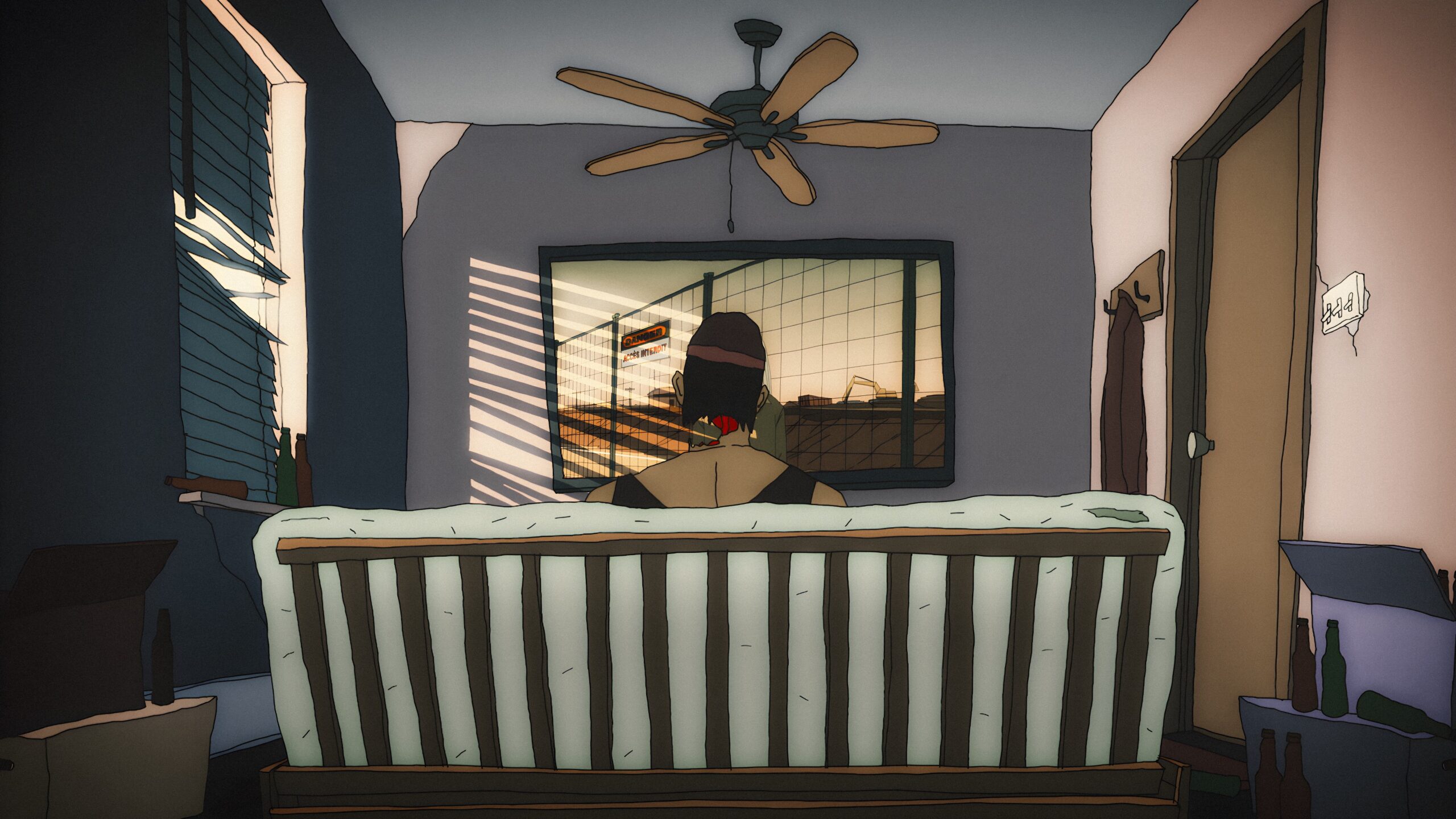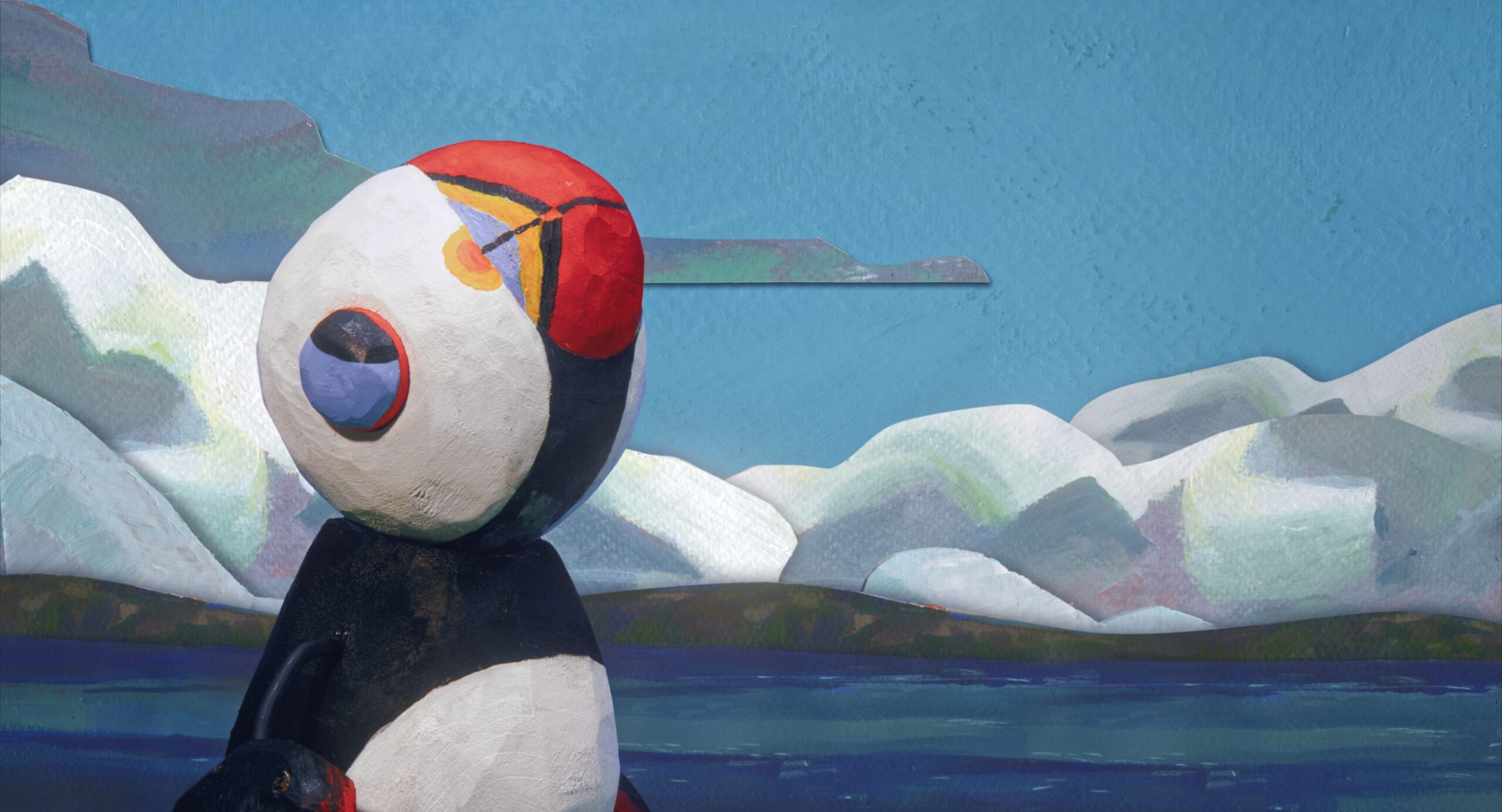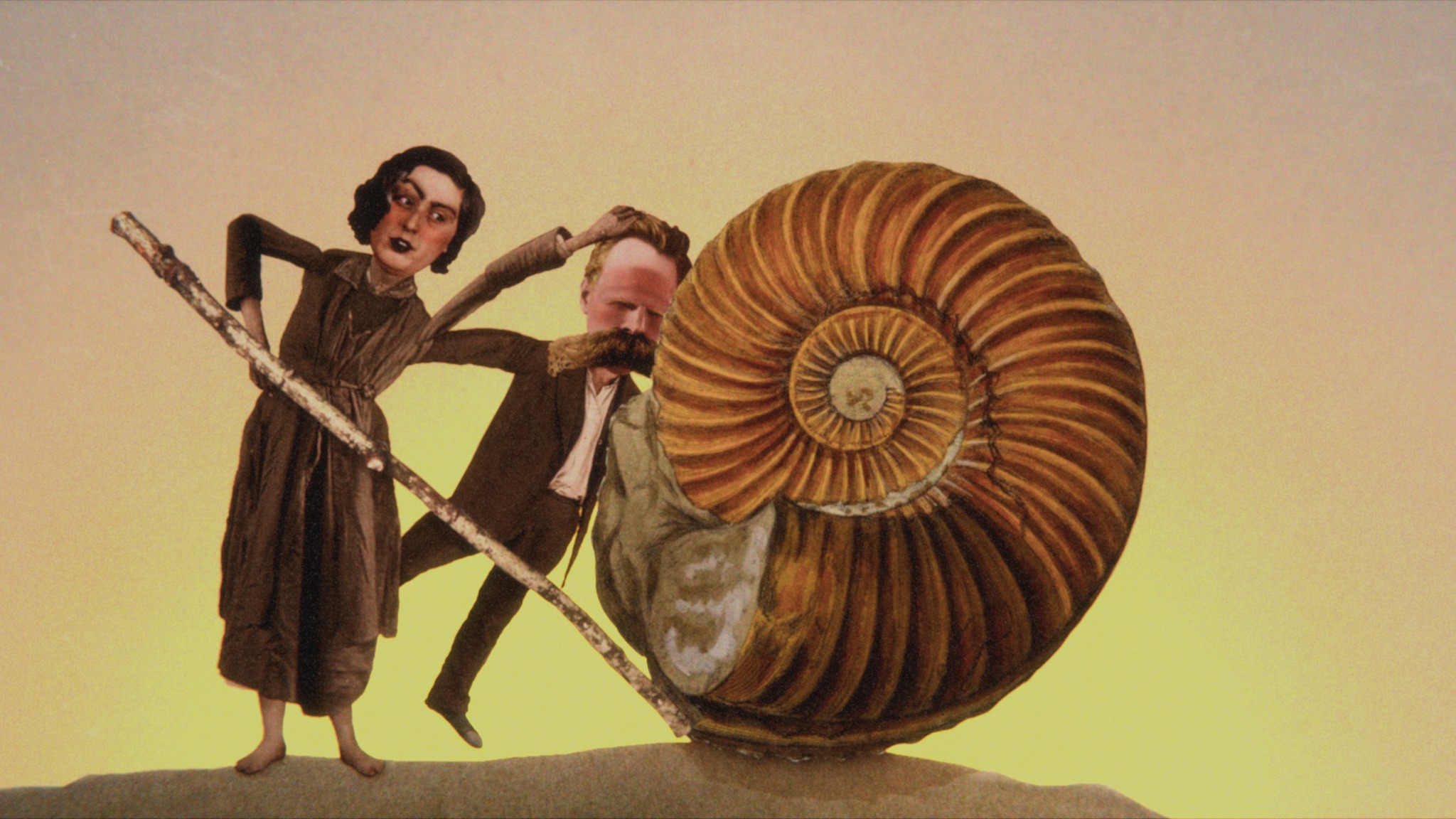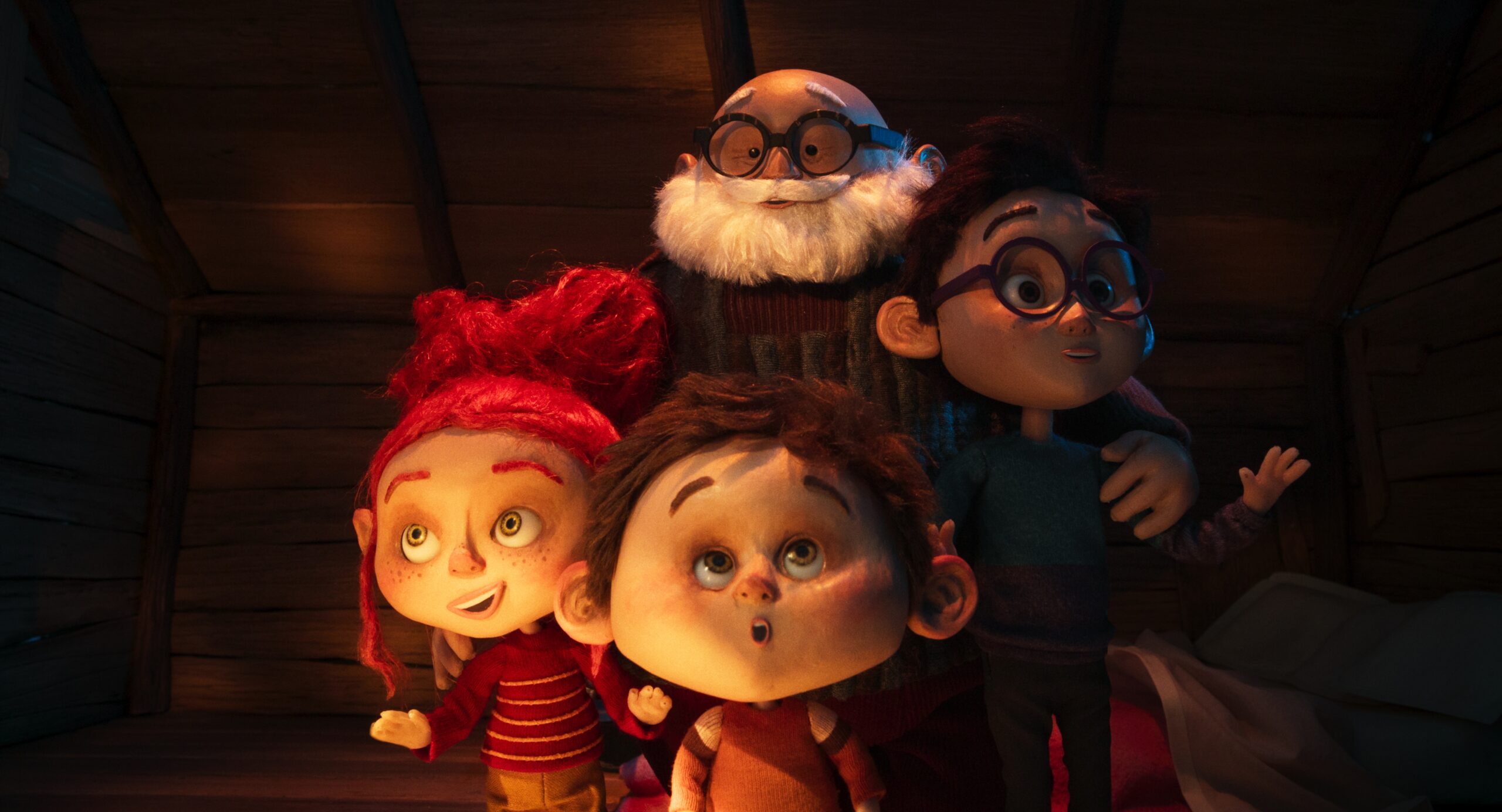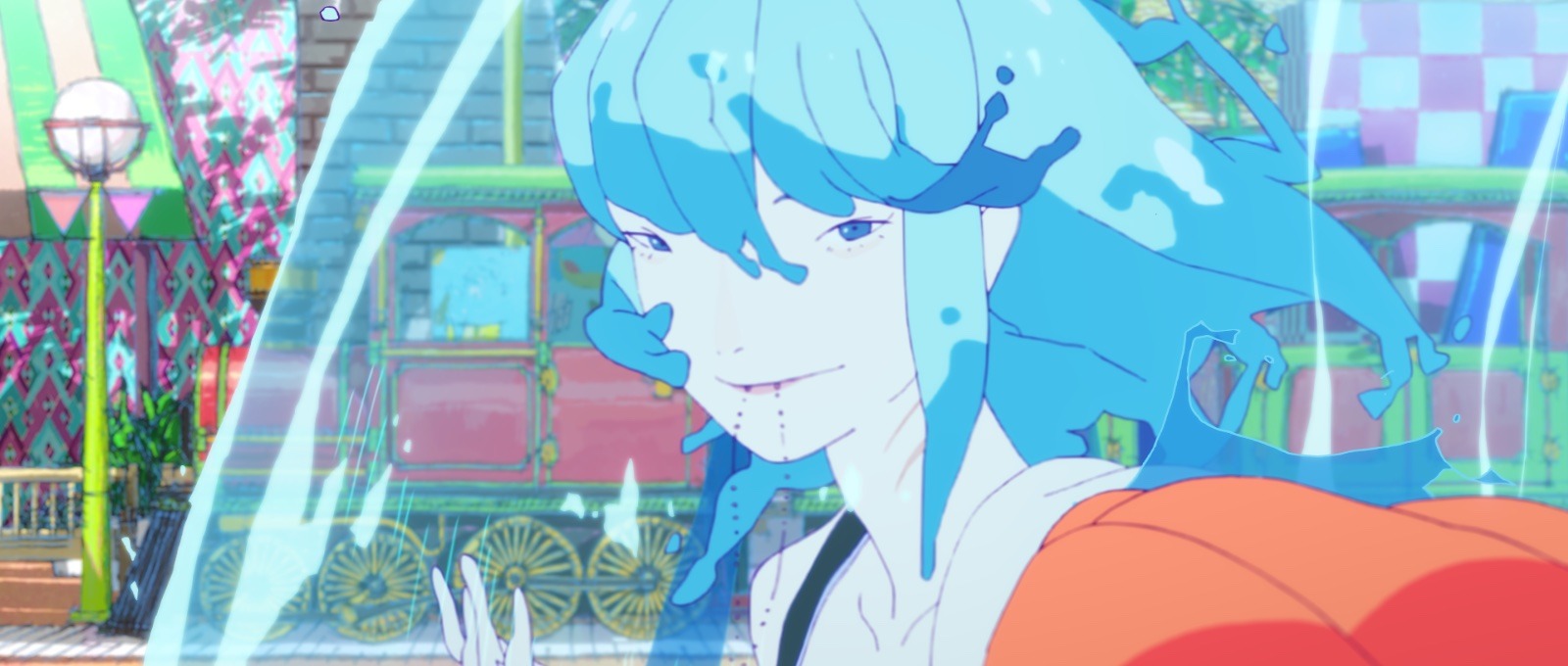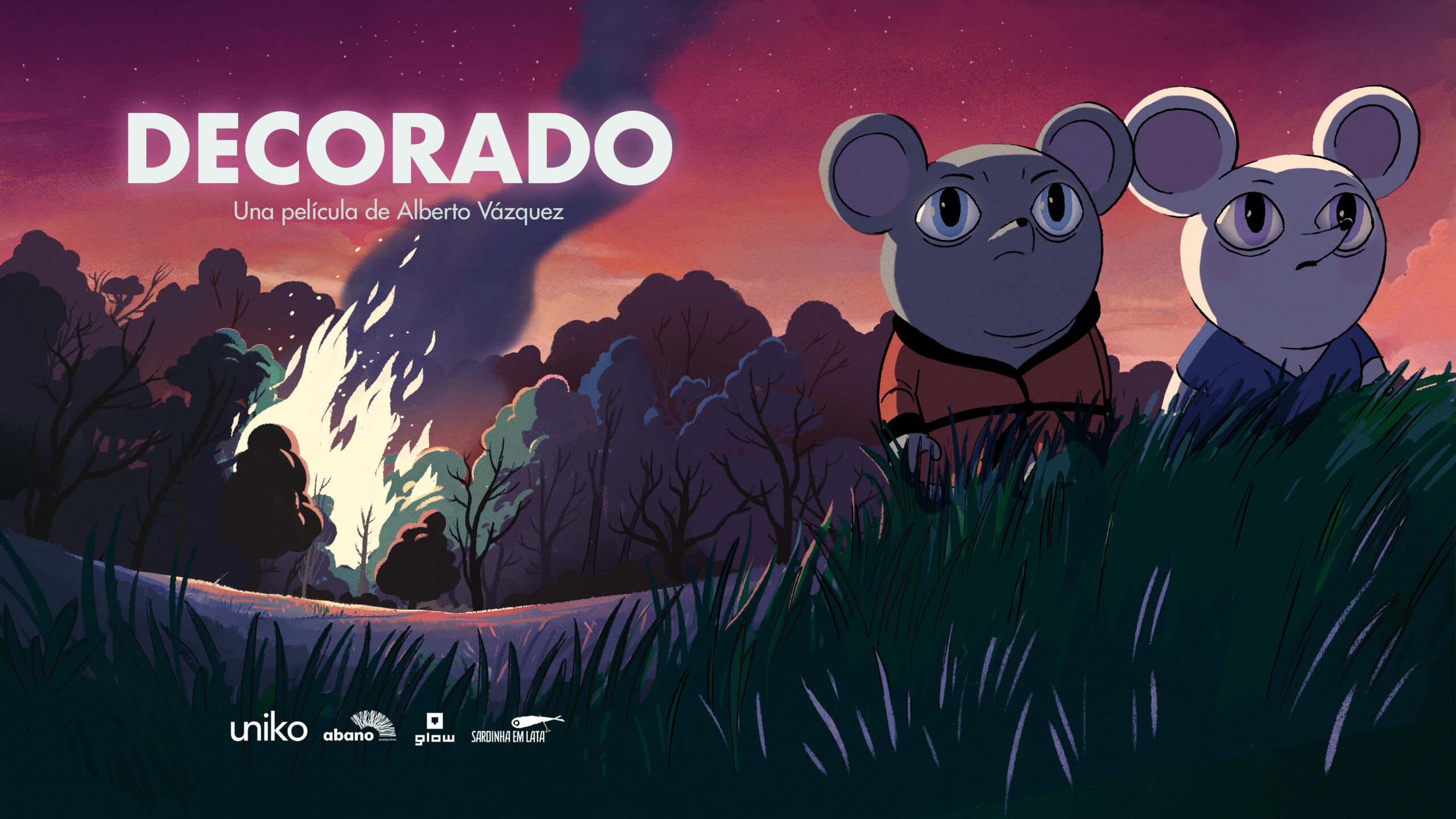Competition & Panorama Screenings
This year the Ottawa International Animation Festival received a total of 2850 entries from 99 different countries. Of those, six feature films and 79 short films, including Animated Series, were chosen for competition.
In addition, 18 films were selected for the Canadian Student Competition and 14 panorama films were chosen to represent the efforts of the Canadian animation community.
Official Competition
The Official Competition is a festival highlight, with short animated films in 8 categories, and animated feature films vying for an award.
An international, six-person jury will be handing out prizes on Saturday, September 27th.

OIAF 2025 Official Competition Award Winners
The Ottawa International Animation Festival (OIAF) has awarded La mort n’existe pas (Death Does Not Exist) (dir. Félix Dufour-Laperrière) the Grand Prize for Feature Animation and Il burattino e la balena (dir. Roberto Catani) the Grand Prize for Short Animation. All awards were announced at the Festival’s Awards Ceremony on September 27, 2025, at the National Arts Centre in Ottawa.
La mort n’existe pas (Death Does Not Exist), the latest from acclaimed Québec animator and filmmaker Dufour-Laperrière (Archipel, Ville Neuve), made its festival debut earlier this year as a part of the Cannes Directors’ Fortnight selection. The film’s dreamlike visuals explore the consequences of strong convictions in a world flooded with moral ambiguity.
With its win at OIAF, Il burattino e la balena qualifies for the Academy Award for Best Animated Short Film category. The OIAF 2025 Grand Prize winner tells the journey of a puppet discovering its humanity, echoing Pinocchio but with Catani’s signature emotional depth and visual poetry.
This year’s CFI Award for Best Canadian Animation winner, La jeune fille qui pleurait des perles (The Girl Who Cried Pearls) (dirs. Chris Lavis and Maciek Szczerbowski), showcases the Academy-nominated duo’s stop-motion talents and storytelling. The Hélène Tanguay Award for Humour was awarded to Poor Marciano (dir. Alex Rey) for its humorous character study.
Exploring the construction of masculinity through a man’s journey of dealing with hair loss and his relationship with his barber, S the Wolf (dir. Sameh Alaa) won the Wacom Public Prize. Alaa also receives a Movink 13 drawing tablet courtesy of Wacom as a part of the award. Rakugaki (The Graffiti) (dir. Ryo Orikasa) won the Animation Mentor Best Narrative Short Award for bringing the poetry of Makoto Takayanagi to life.
The OIAF welcomed the expertise of Winston Hacking (Canada), Gina Kamentsky (USA), Magdelena Zira (Cyprus), Miriam Kandelaki (Georgia), Chris Lavis (Canada) and Honami Yano (Japan) as jurors for this year’s Official Competition. The Kids Jury, made up of Ottawa-area children ages 8 to 12, selected the winners of the Young Audiences 7+ competition. The Teen Audiences 13+ competition was decided by the Teen Vote public prize.
In keeping with tradition, the OIAF 2025 award statues were designed by Ottawa-based scrap metal artist Tick Tock Tom. The statues are working phénakisticopes featuring an animation by New York artist George Griffin.
Complete Competition Award Winner List :
Grand Prize for Short Animation
Winner: Il burattino e la balena (dir. Roberto Catani)
Jury Comment: For the Grand Prize for Short Animation, we selected this film for its ability to work with image, movement and sound in equal partnership while leaving room for the viewer to engage with its ideas. The film works with an iconic character to pose important questions about conformity and society while remaining open-ended in its approach. Everything in this film is essential, with the film employing an inventive use of animation and sound to immerse the viewer in an unforgettable experience.
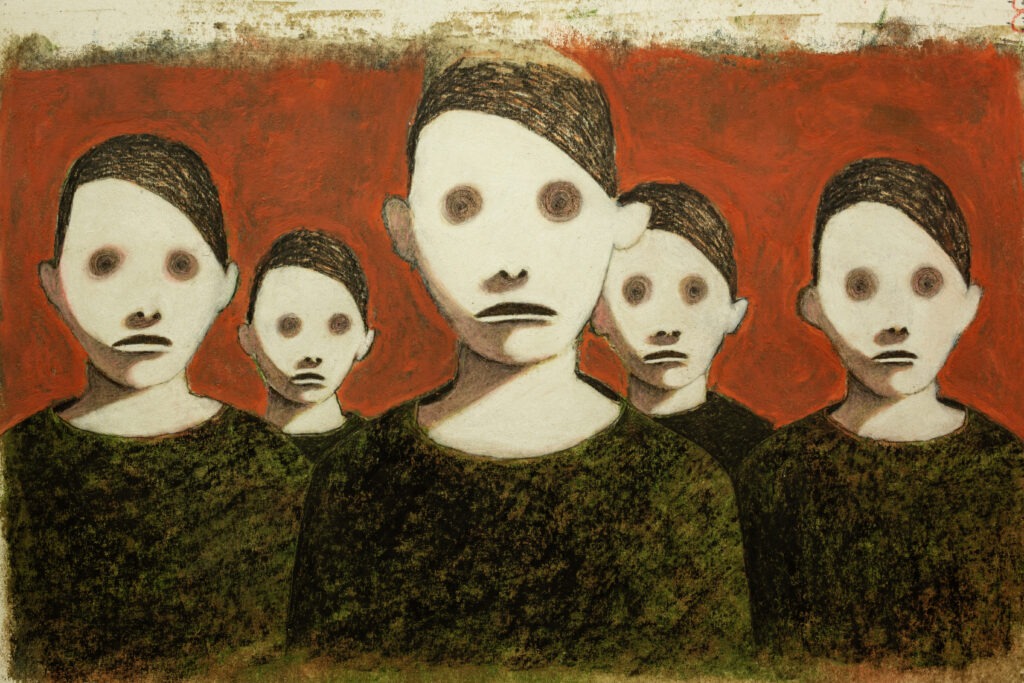
Grand Prize for Animated Feature
Winner: La mort n’existe pas (Death Does Not Exist) (dir. Félix Dufour-Laperrière)
Jury Comment: An exploration of the personal cost of our convictions through sublime animation in which the presence of the natural world adds a second layer of poetic weight and profound meaning.
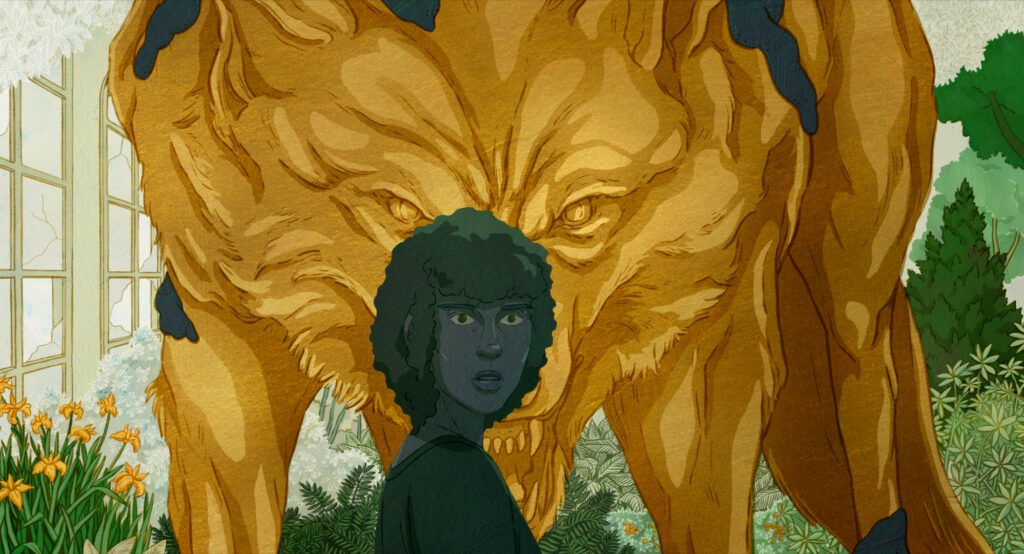
Honourable Mention: La gran historia de la filosofía occidental (The Great History of Western Philosophy) (dir. Aria Covamonas)
Jury Comment: From a unique perspective and visionary director, a challenging film that deserves its day of honour in the great Dadaist tradition.
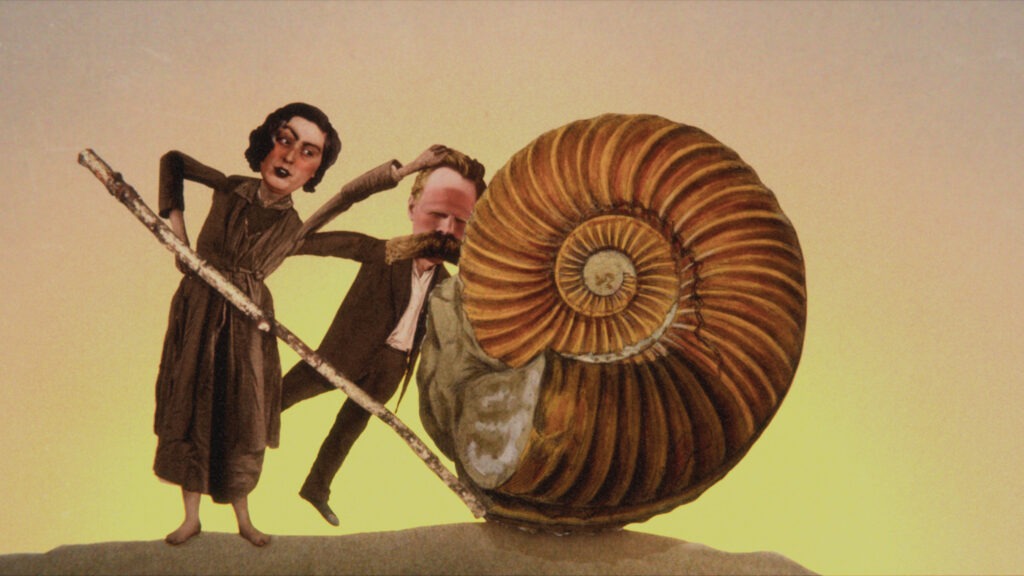
Wacom Public Prize
Winner: S the Wolf (dir. Sameh Alaa)
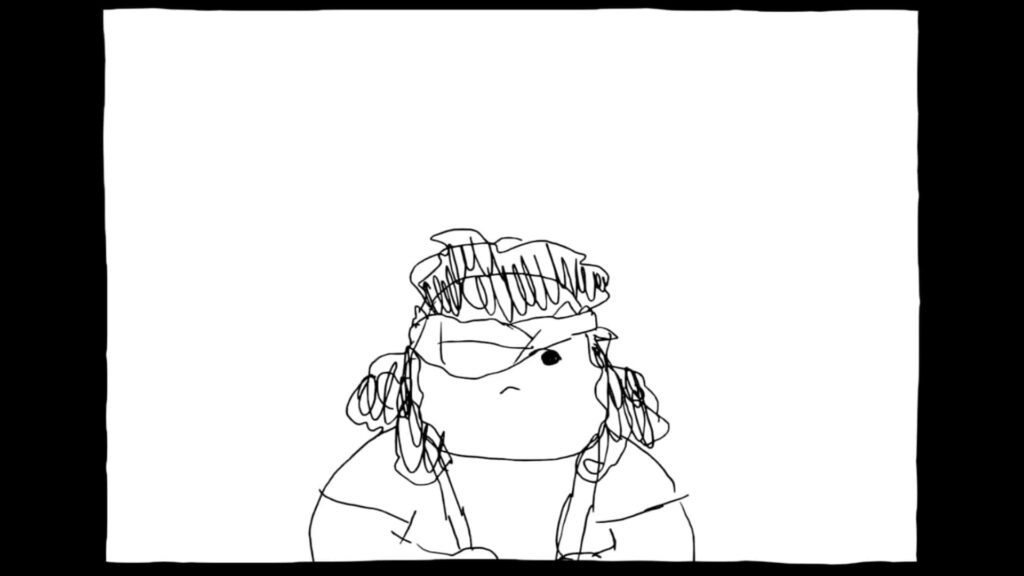
CFI Award for Best Canadian Animation
Winner: La jeune fille qui pleurait des perles (The Girl Who Cried Pearls) (dirs. Chris Lavis and Maciek Szczerbowski)
Comment: For its extraordinary animation and its startling fairy tale narrative, which combines a searing, astute critique of human greed with a plea for love and personal integrity, the Canadian Film Institute Award for Best Canadian Animation goes to The Girl Who Cried Pearls, by Chris Lavis and Maciek Szczerbowski.
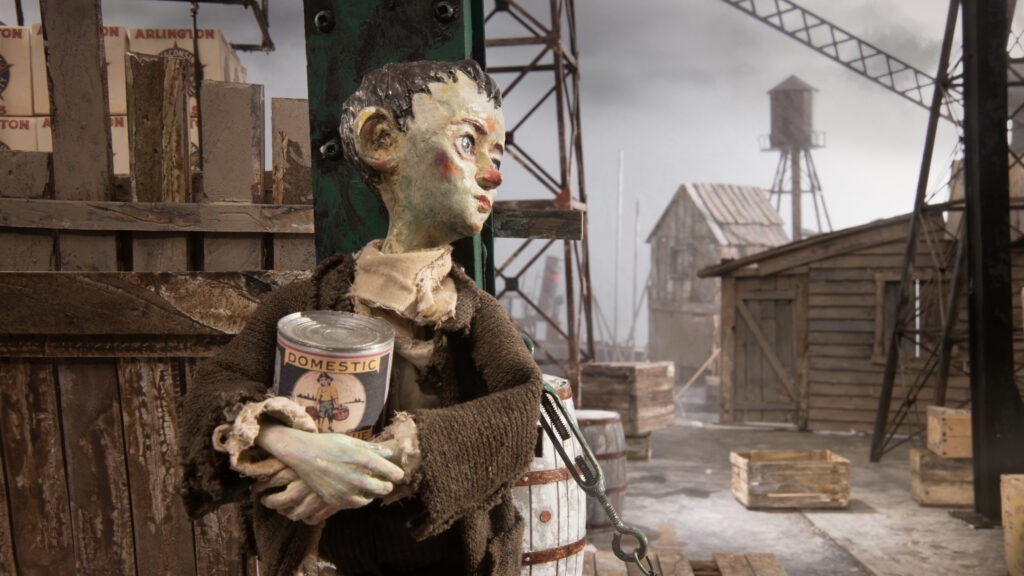
Honourable Mention: We’re Kinda Different (dir. Ben Meinhardt)
Comment: For its clever, entertaining, and impassioned affirmation of difference as a source of strength, an Honourable Mention goes to We’re Kinda Different, by Ben Meinhardt.
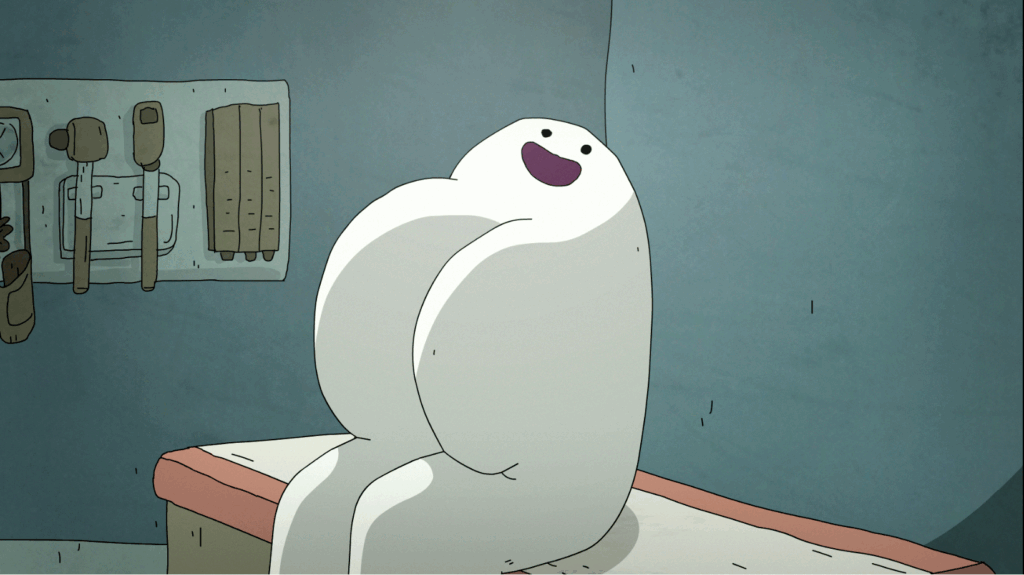
Hélène Tanguay Award for Humour
Winner: Poor Marciano (dir. Alex Rey)
Comment: Hélène loved to laugh, and this award crowns a film whose humour matches her irreverent spirit. While there were—thankfully—more comic films than usual this year, it was very clear to us which film we could imagine Hélène laughing her ass off at. Who on earth thought to combine astrophysics, masturbation, and a one-hit Canadian band that we all—well, at least I do—love to hate, the Crash Test Dummies (I mean, who the hell can be so obsessed with one band?) into one of the most pleasantly strange and hilarious character studies?
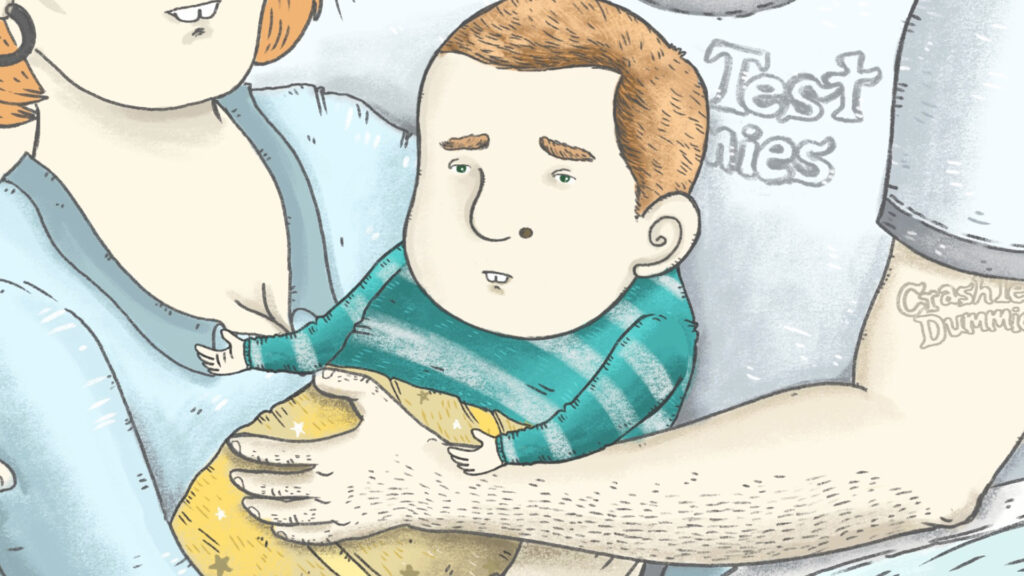
Category Awards
Animation Mentor Award for Best Narrative Short
Winner: Rakugaki (The Graffiti) (dir. Ryo Orikasa)
Jury Comment: This film immediately transported us into a story about the disintegration of language. It employs multiple techniques in the representation of a city, which becomes language and then loses it. It left us with the question – what is consciousness without language?
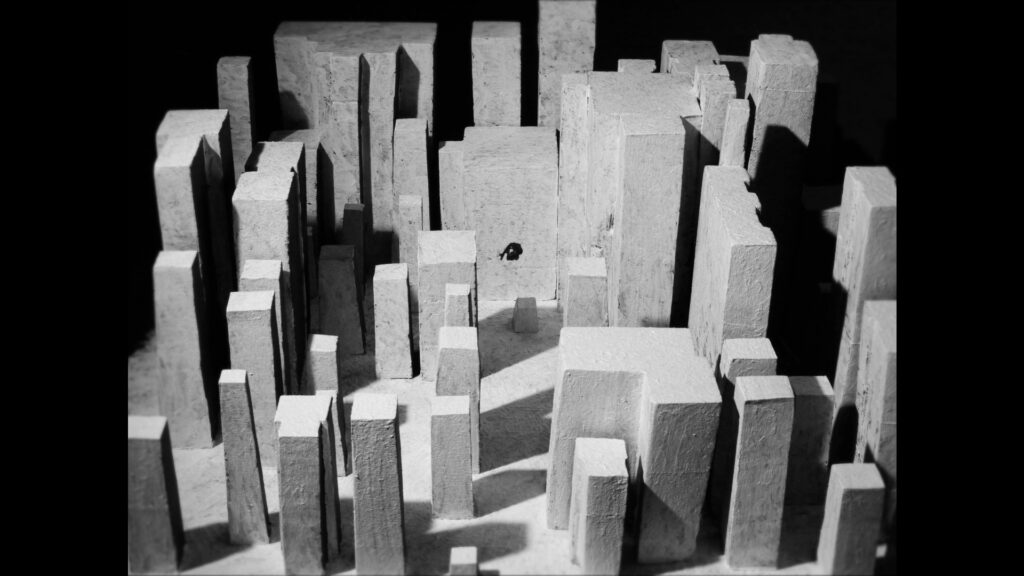
ASIFA International 65th Anniversary Award for Best Non-Narrative Short
Winner: Green Lung (dir. Simon Hamlyn)
Jury Comment: We loved how this film used colour, sound and inventive technique to engulf the viewer in its world. The filmmaker demonstrates how experimental animation can lead to surprising outcomes.
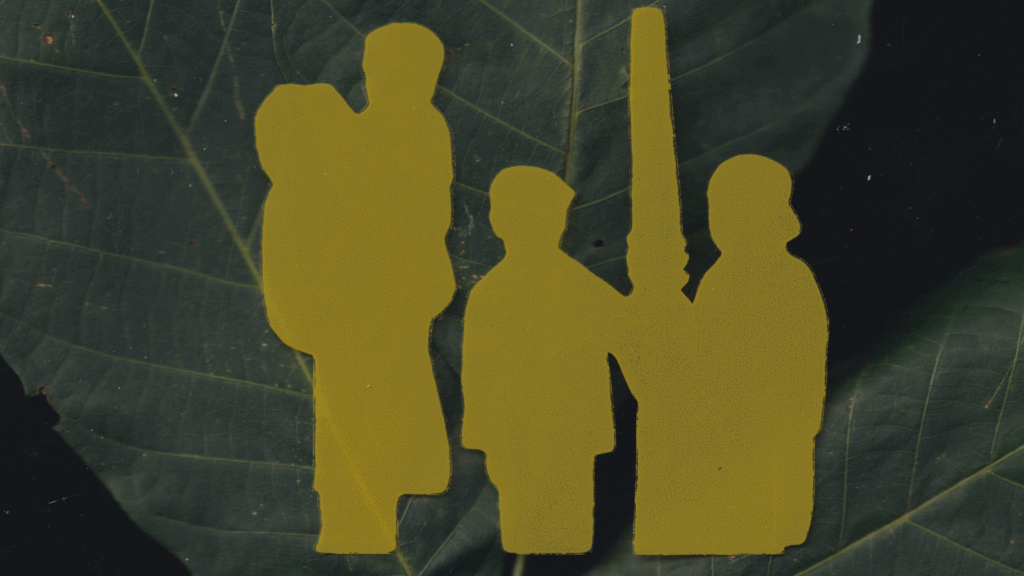
Best Commissioned Animation
Winner: Desi Oon (dir. Suresh Eriyat)
Jury Comment: We loved this film for its playful use of materials, creating an unapologetically over-the-top musical centred on an unassuming subject.
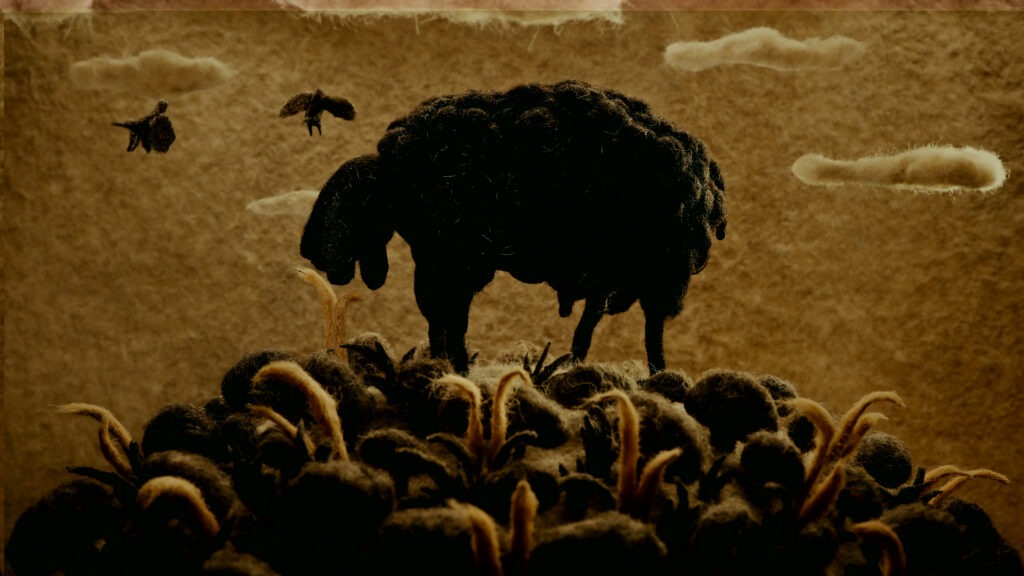
Bento Box Award for Best Student Animation
Winner: Poppy Flowers (dir. Evridiki Papaiakovou)
Jury Comment: Working within a small field size on film footage Poppy Flowers creates engaging imagery and movement. The narrative exploring ritual and family relationships was both compelling and beautiful.
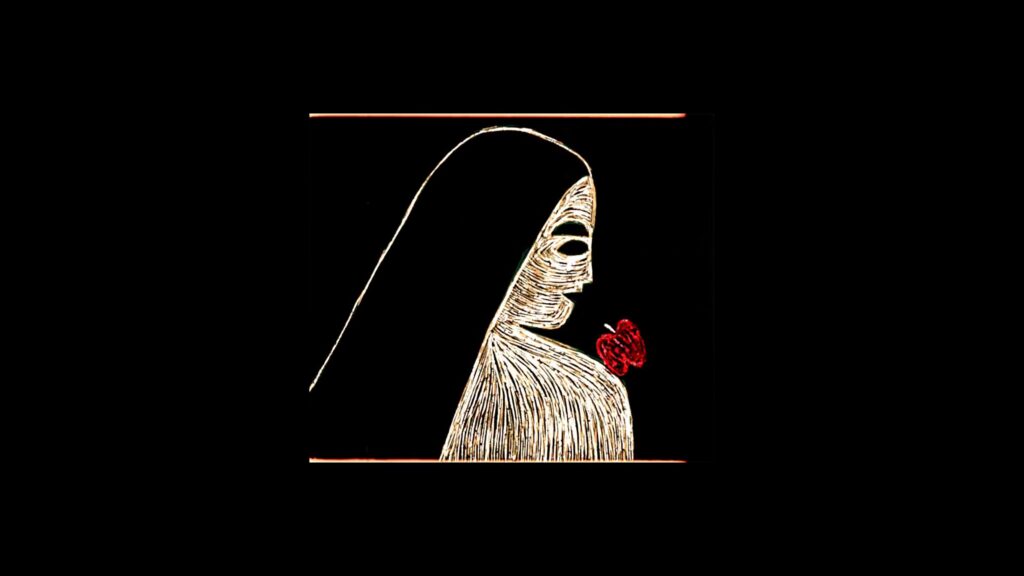
TVPaint Award for Best Canadian Student Animation
Winner: Lullaby for a Deathdream (dir. Charlie Galea-McClure)
Comment: A lyrical meditation on saltwater and remembrance—an atmosphere-driven work whose mixed-media textures linger like a final breath.
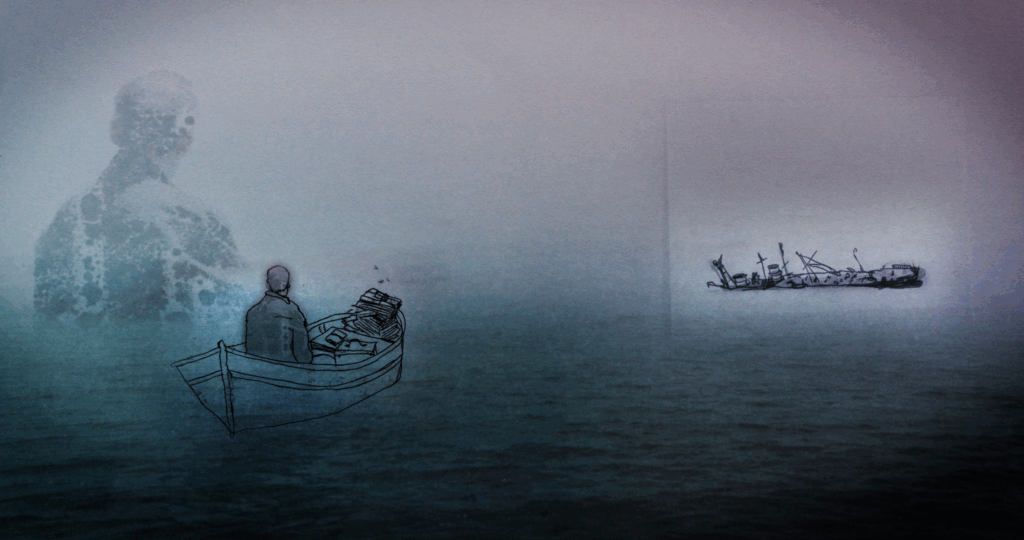
Honourable Mention: Music in My Pocket (dir. Veronika Kostyuk)
Comment: A beautifully made, surprisingly mature sand animation skimming an old musician’s memories—growth, exploration, love, passion, war, creation—flashing past with the breathless speed of a life
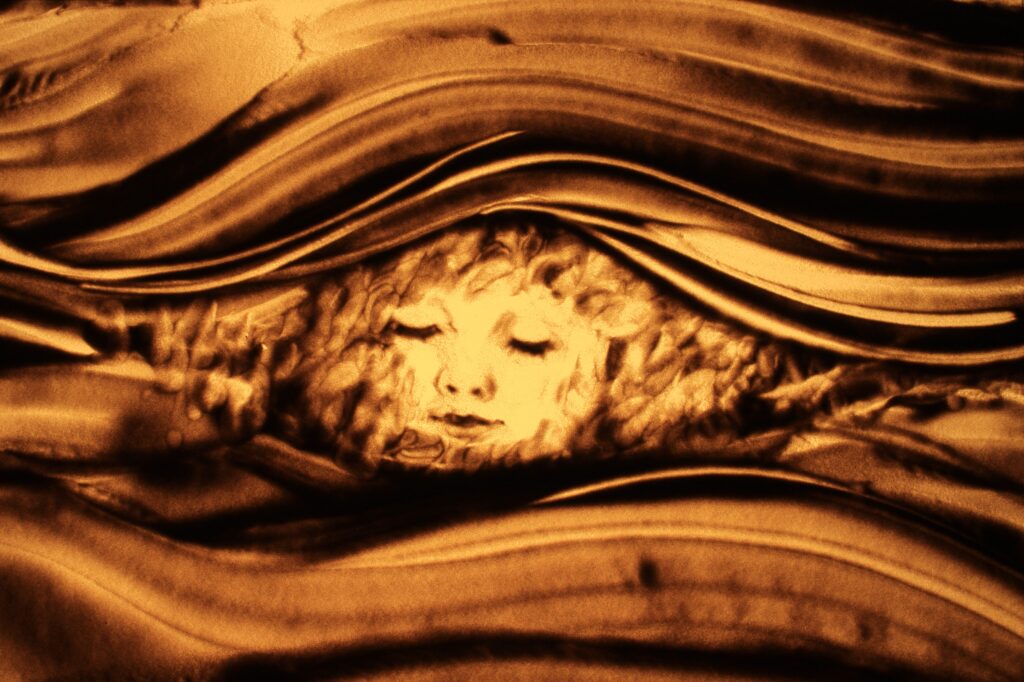
Honourable Mention: When the Moon Sings (dir. Jesu Medina)
Comment: Ambitious, mysterious, and haunting—poetic, with a tinge of the theatrical.
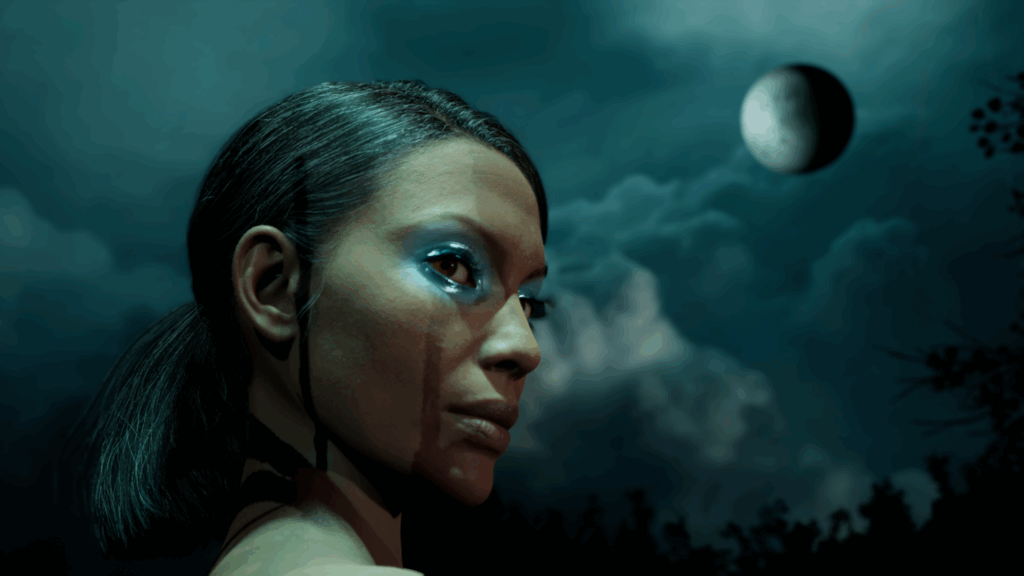
Animation for Young Audiences 7+ Competition
Winner: Les bottes de la nuit (The Night Boots) (dir. Pierre-Luc Granjon)
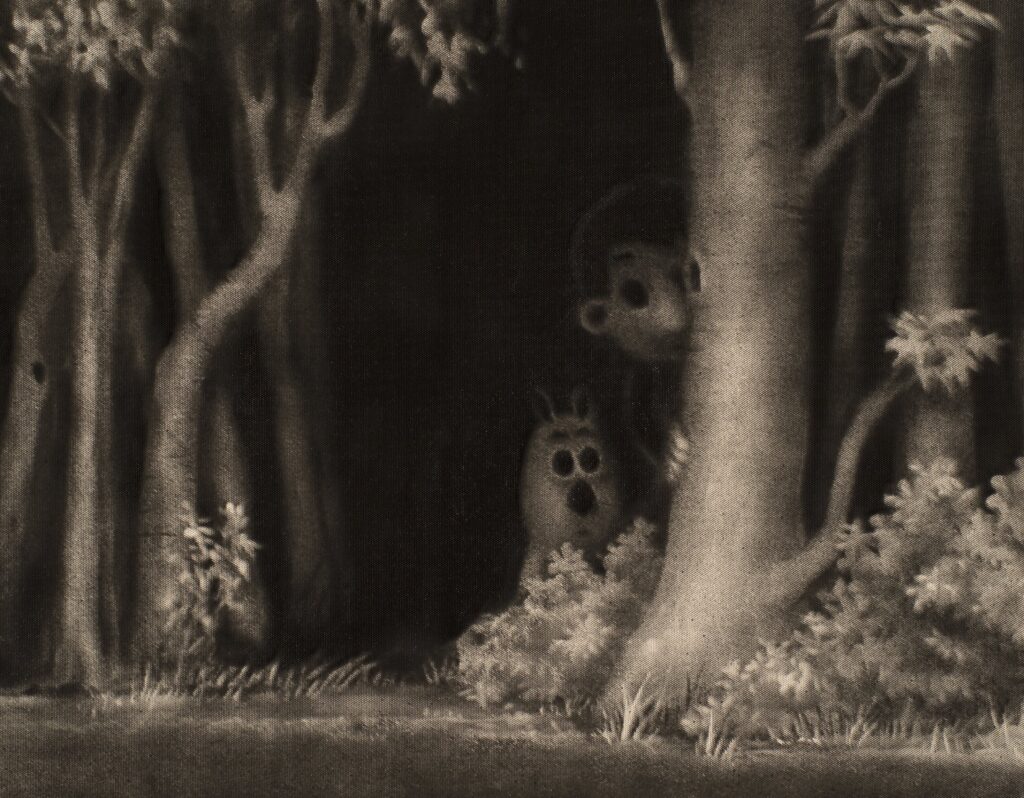
Honourable Mention: Omedodeedu (Edu’s Fear) (dirs. Bruno Mazzilli and Tiago Judas)
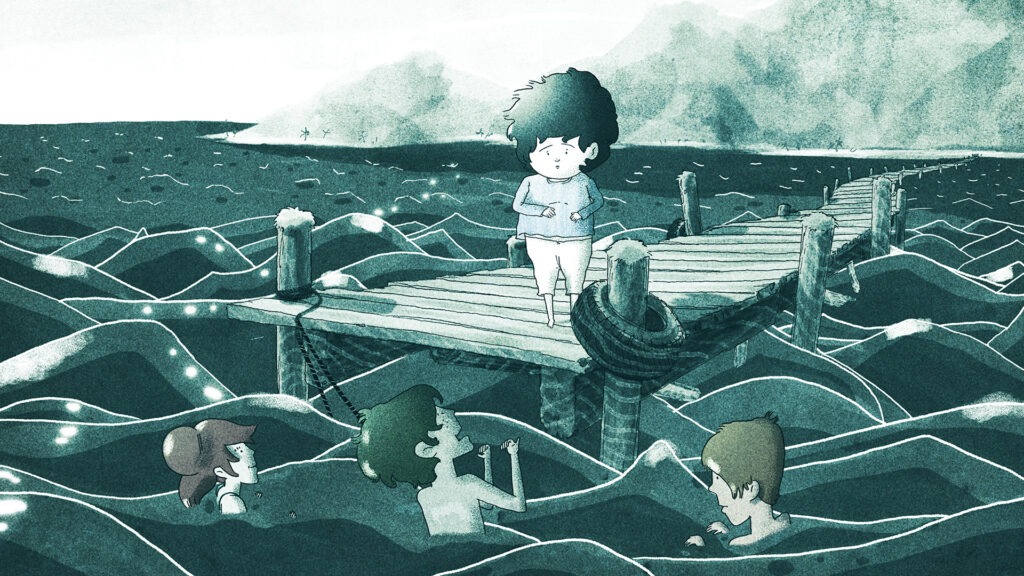
Animation for Teen Audiences 13+ Competition
Winner: Autokar (dir. Sylwia Szkiłądź)
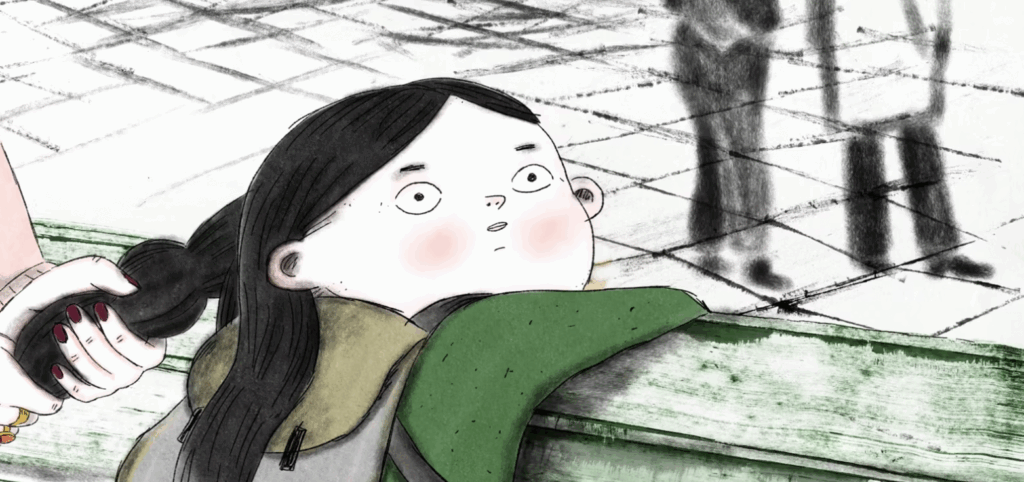
Animated Series Competition
Winner: Eggland (dirs. Cole Kush and Christopher Rutledge)
Comment: For its striking design that mirrors its protagonists’ awkward stillness and for championing an older perspective too often overlooked. With a deliberately languid tempo, it reflects a community’s slow, fractured fade—days blur, time slips, the world feels like a waiting room to the afterlife.
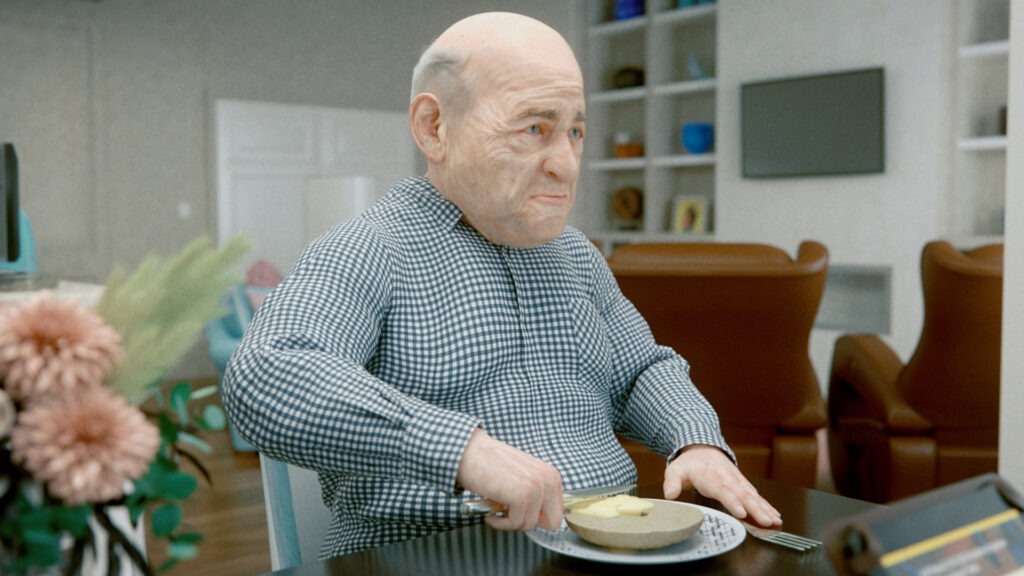
Honourable Mention: Common Side Effects ‘Pilot’ (dir. Camille Bozec)
Comment: For its deft mix of deadpan and absurdist comedy and its timely critique of a corrupt, profit-over-people system.
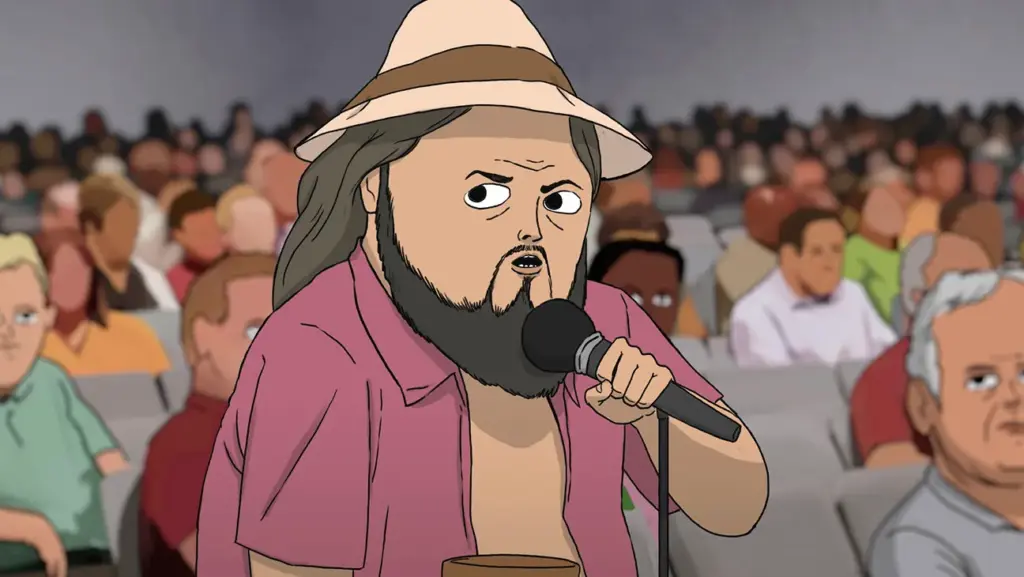
Craft Awards
Best Script
Winner: S the Wolf (dir. Sameh Alaa)
Jury Comment: Truthful, funny, carried by a brutal honesty and an unspoken love communicated through insult. It felt fucking real. The animation doesn’t get in the way here; it allowed the story to shine.
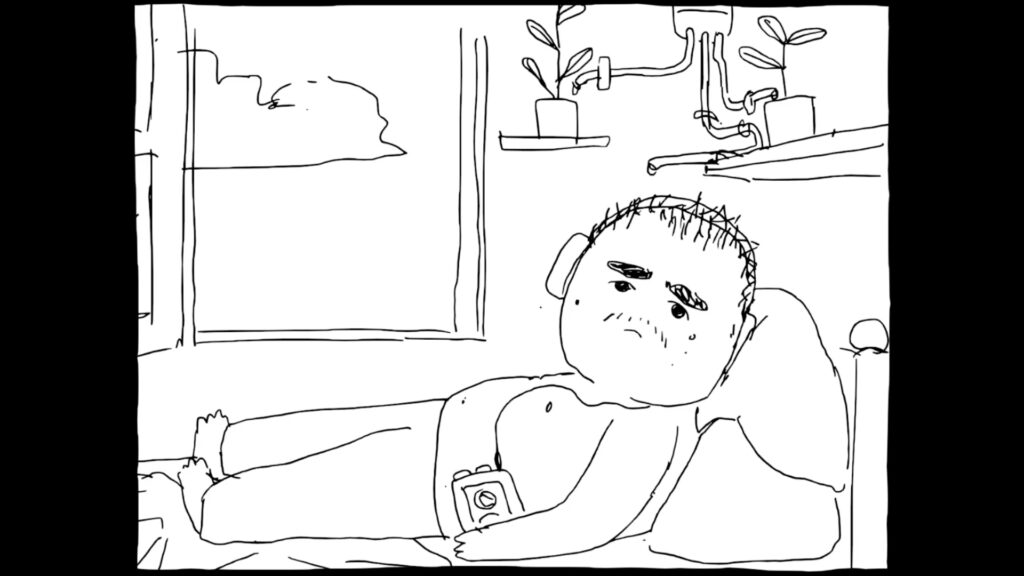
Best Design
Winner: 海星,乌鸦,独角兽 (Crow, Starfish, and Unicorn) (dir. Xiaoxuan Han)
Jury Comment: Our selection built a story with its own logic coming directly from the design of its characters. The result was surprising, emotionally engaging and otherworldly.
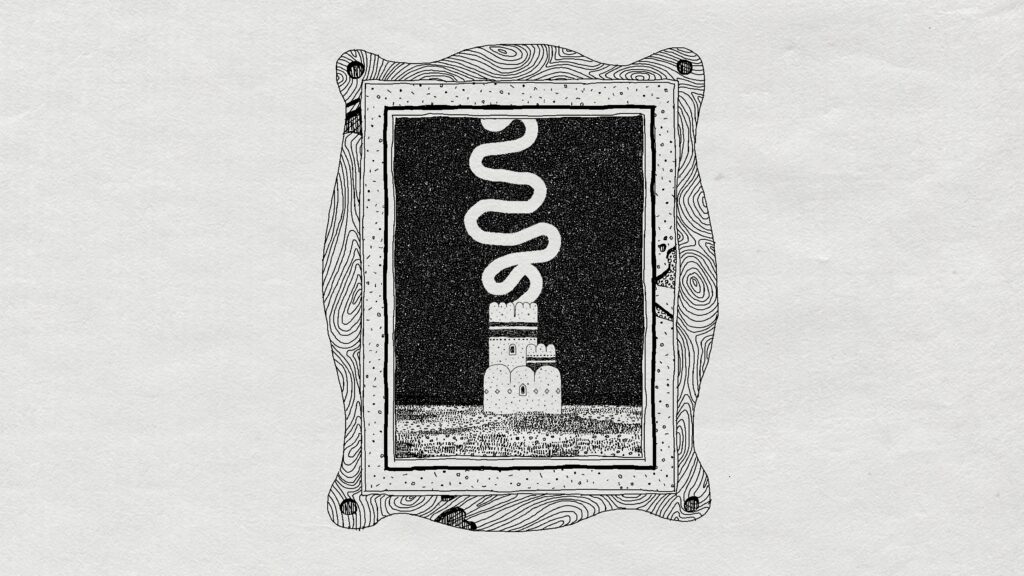
XPPen Craft Award for Best Animation Technique
Winner: Fusion (dir. Richard Reeves)
Jury Comment: For the XPPen Craft Award Prize for Best Animation Technique, the jury selected a film with a perfect assemblage of sound, movement and colour activating the imagination.
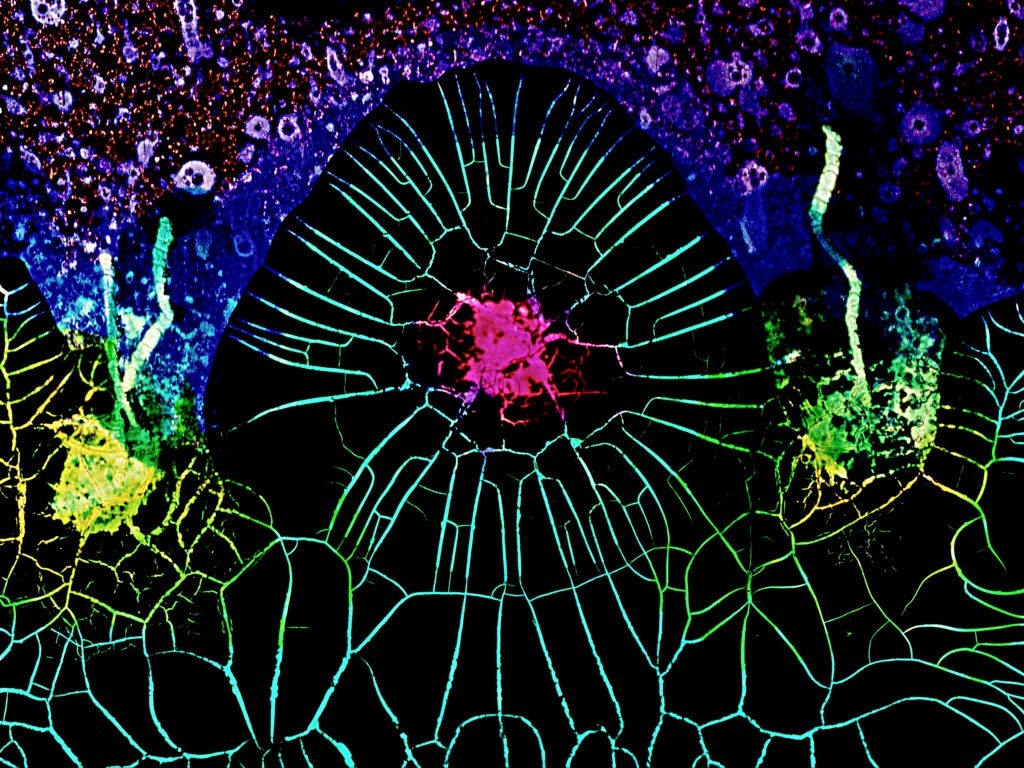
Best Sound Design
Winner: Evacuations (dir. Lilli Carré)
Jury Comment: Sound creates the physical experience in film, moving from its source directly to the body. Our selection employs sound playfully juxtaposed with image and movement to create a whole stronger than its individual parts.
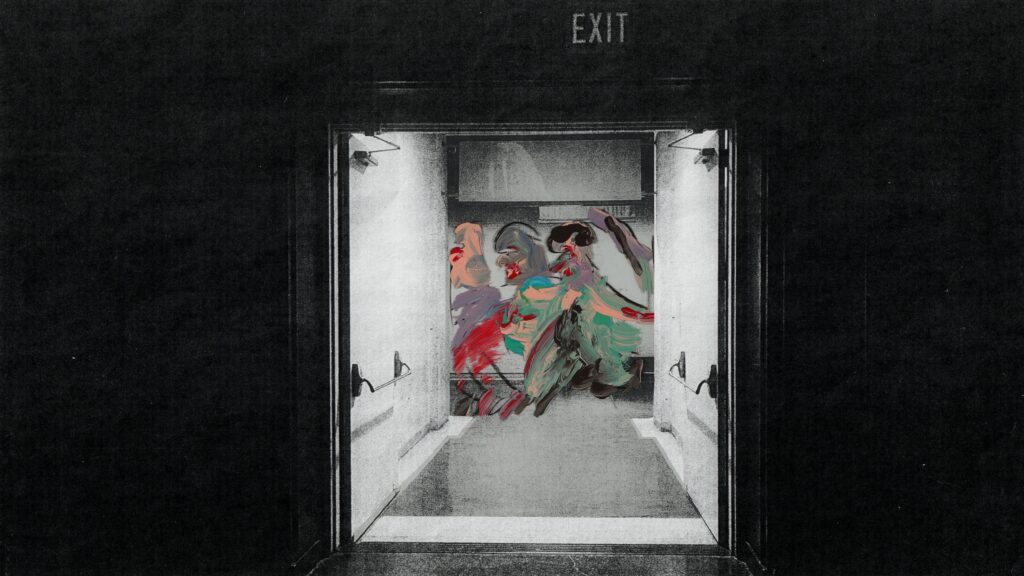
Short Film Competitions
Short Competition 1
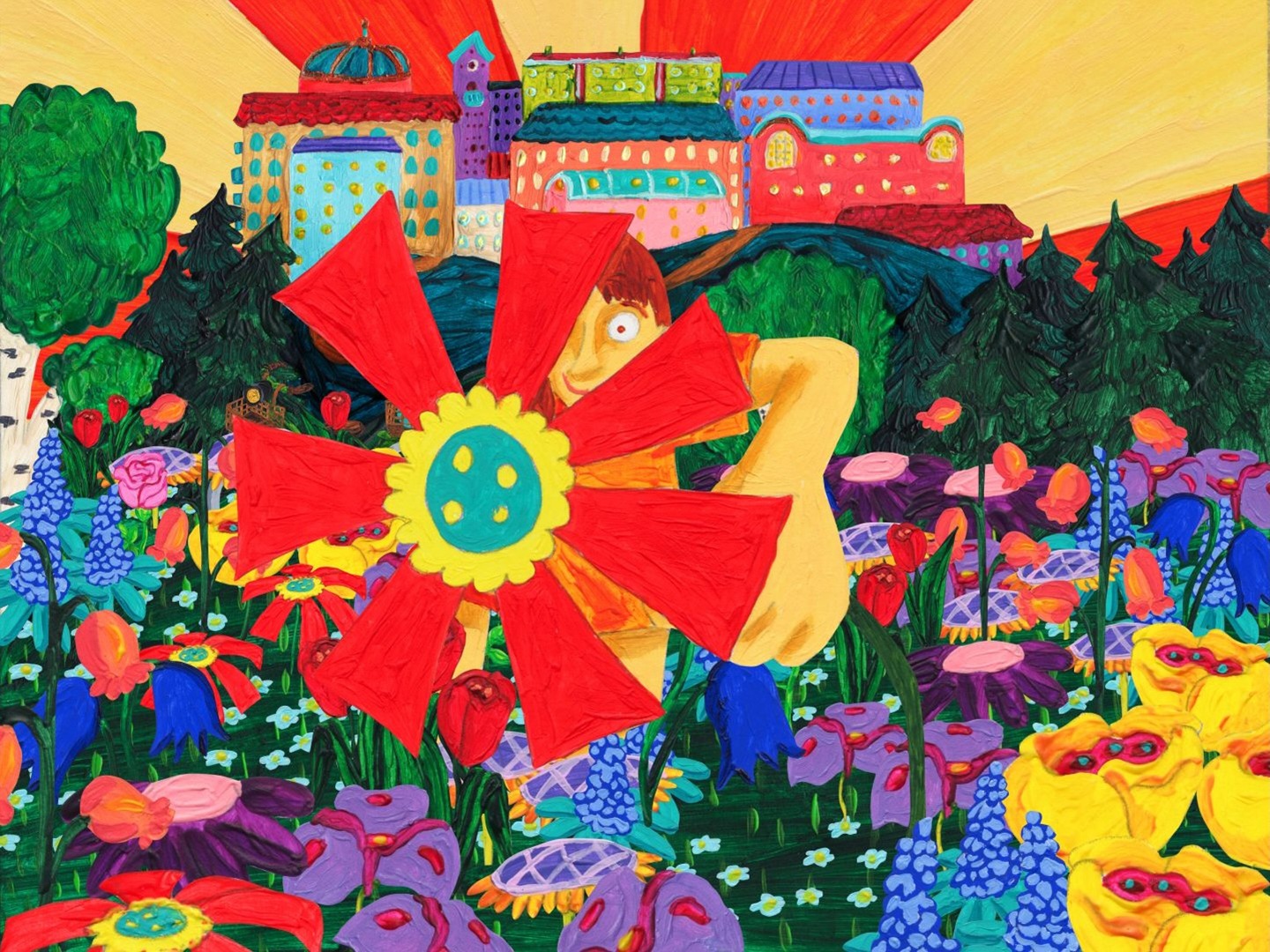
Presented in partnership with CMF
![]()
Wednesday, September 24, 7:00 pm (GALA) Filmmakers and Jury in attendance
ByTowne Cinema
Preceded by Opening Ceremony
Saturday, September 27, 1:00 pm
ByTowne Cinema
Meet the Filmmakers
Thursday, September 25, 9:30 am
Arts Court Theatre
Short Competition 2

Thursday, September 25, 3:00 pm
(GALA) Filmmakers and Jury in attendance
ByTowne Cinema
Saturday, September 27, 3:00 pm
ByTowne Cinema
Meet the Filmmakers
Friday, September 26, 9:30 am
Arts Court Theatre
Short Competition 3
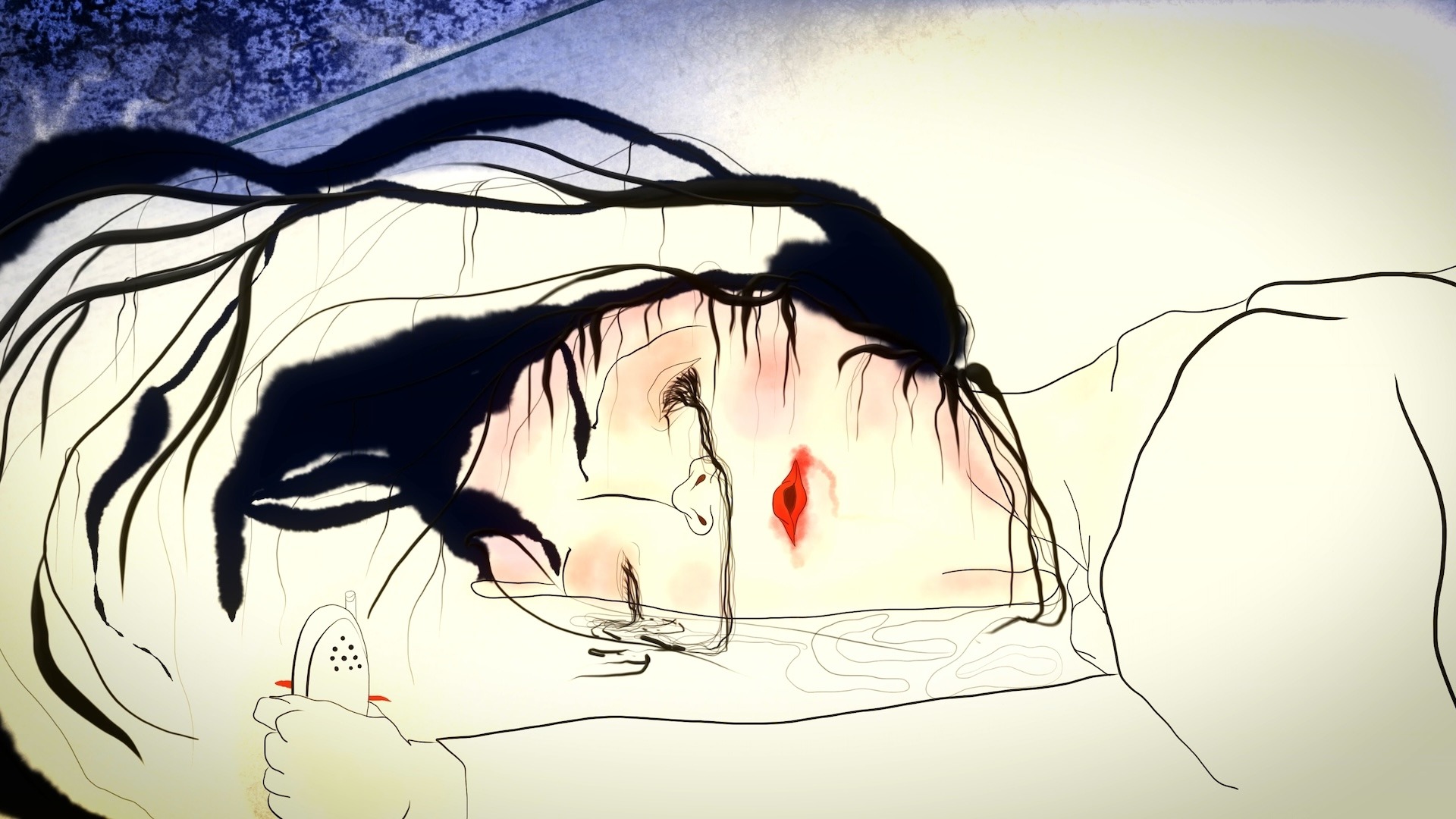
Presented in partnership with SVA NYC
![]()
Thursday, September 25, 7:00 pm
(GALA) Filmmakers and Jury in attendance
ByTowne Cinema
Saturday, September 27, 5:00 pm
ByTowne Cinema
Meet the Filmmakers
Saturday, September 27, 9:30 am
Arts Court Theatre
Short Competition 4
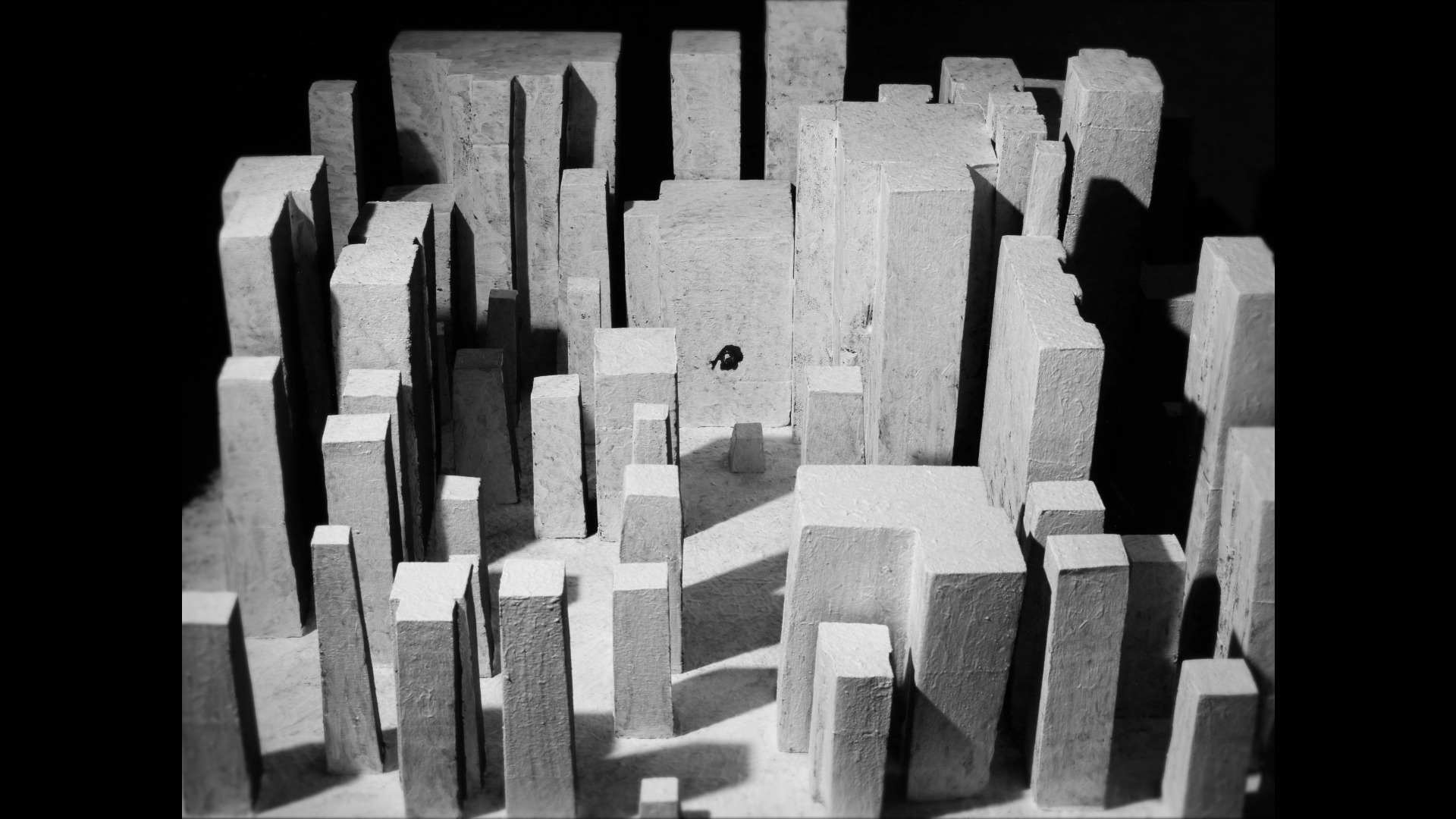
Friday, September 26, 11:00 am
(GALA) Filmmakers and Jury in attendance
ByTowne Cinema
Sunday, Sept 28, 1:00 pm
ByTowne Cinema
Meet the Filmmakers
Saturday, September 27, 11:00 am
Arts Court Theatre
Short Competition 5
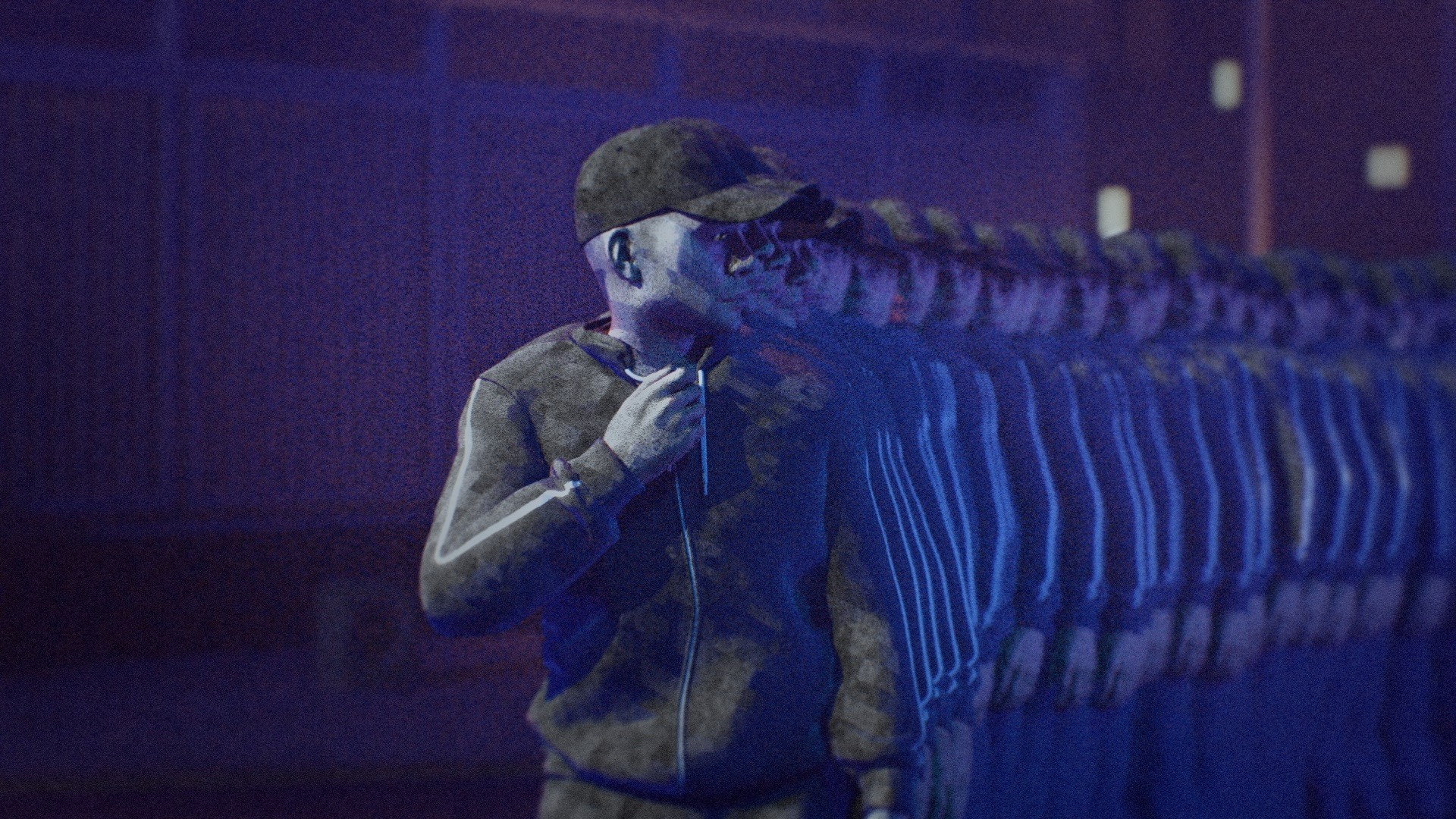
Presented in partnership with Animation Mentor, A Yellowbrick Learning Brand
![]()
Friday, September 26, 7:00 pm
(GALA) Filmmakers and Jury in attendance
ByTowne Cinema
Sunday, September 28, 3:00 pm
ByTowne Cinema
Meet the Filmmakers
Sunday, September 28, 9:30 am
Arts Court Theatre
Animated Series
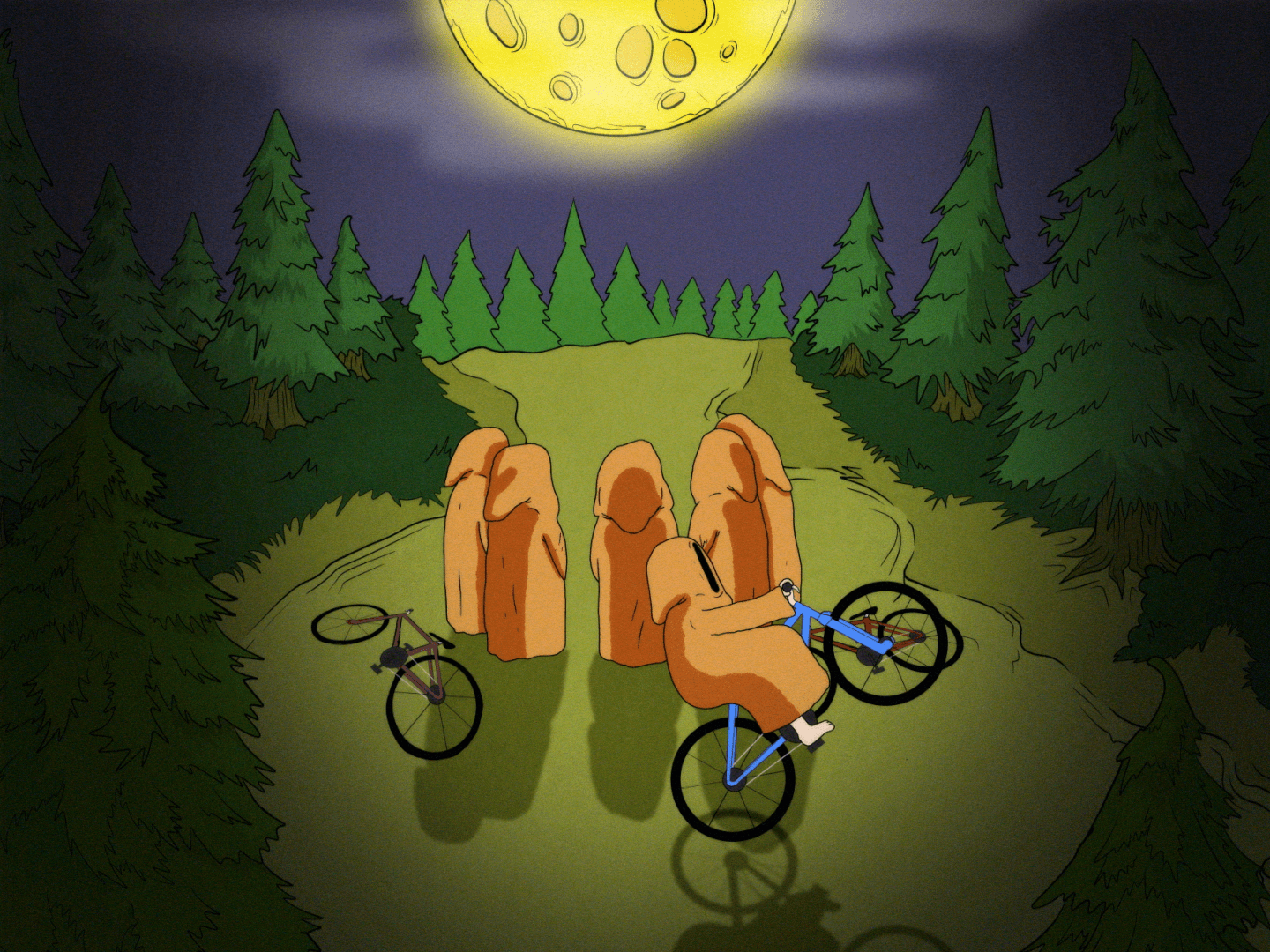
Thursday, September 25, 9:00 pm
(GALA) Filmmakers and Jury in attendance
OAG: Alma Duncan Salon
Friday, September 26, 3:00 pm
OAG: Alma Duncan Salon
Young Audiences 7+
Saturday, September 27, 9:30 am
(GALA) Filmmakers and Jury in attendance
(Free for kids under 12 and anyone with a Pique ticket)
OAG: Alma Duncan
Teen Audiences 13+
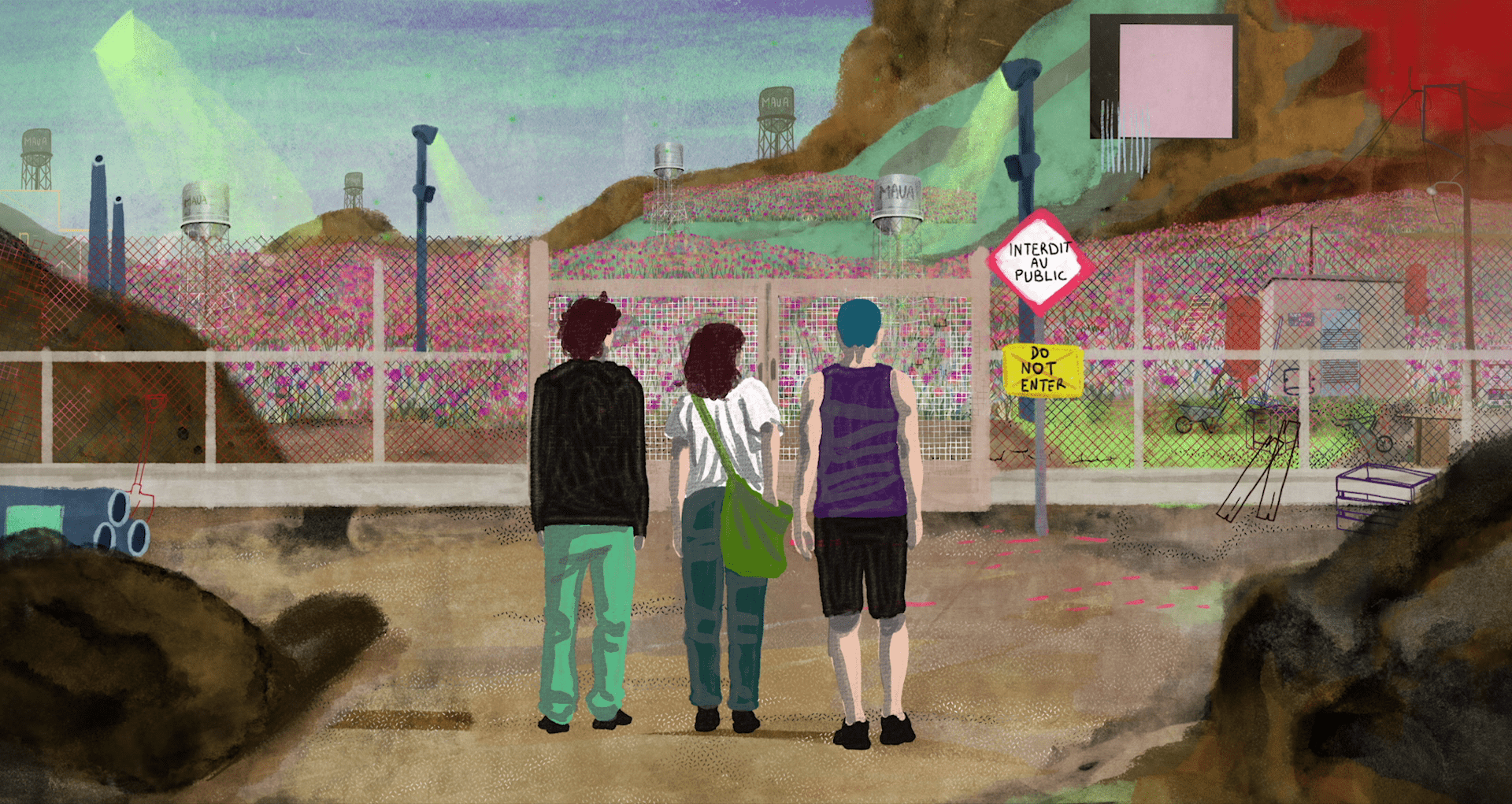
Saturday, September 27, 3:00 pm
(GALA) Filmmakers and Jury in attendance
Free for anyone with a Pique ticket)
OAG: Alma Duncan
Canadian Student
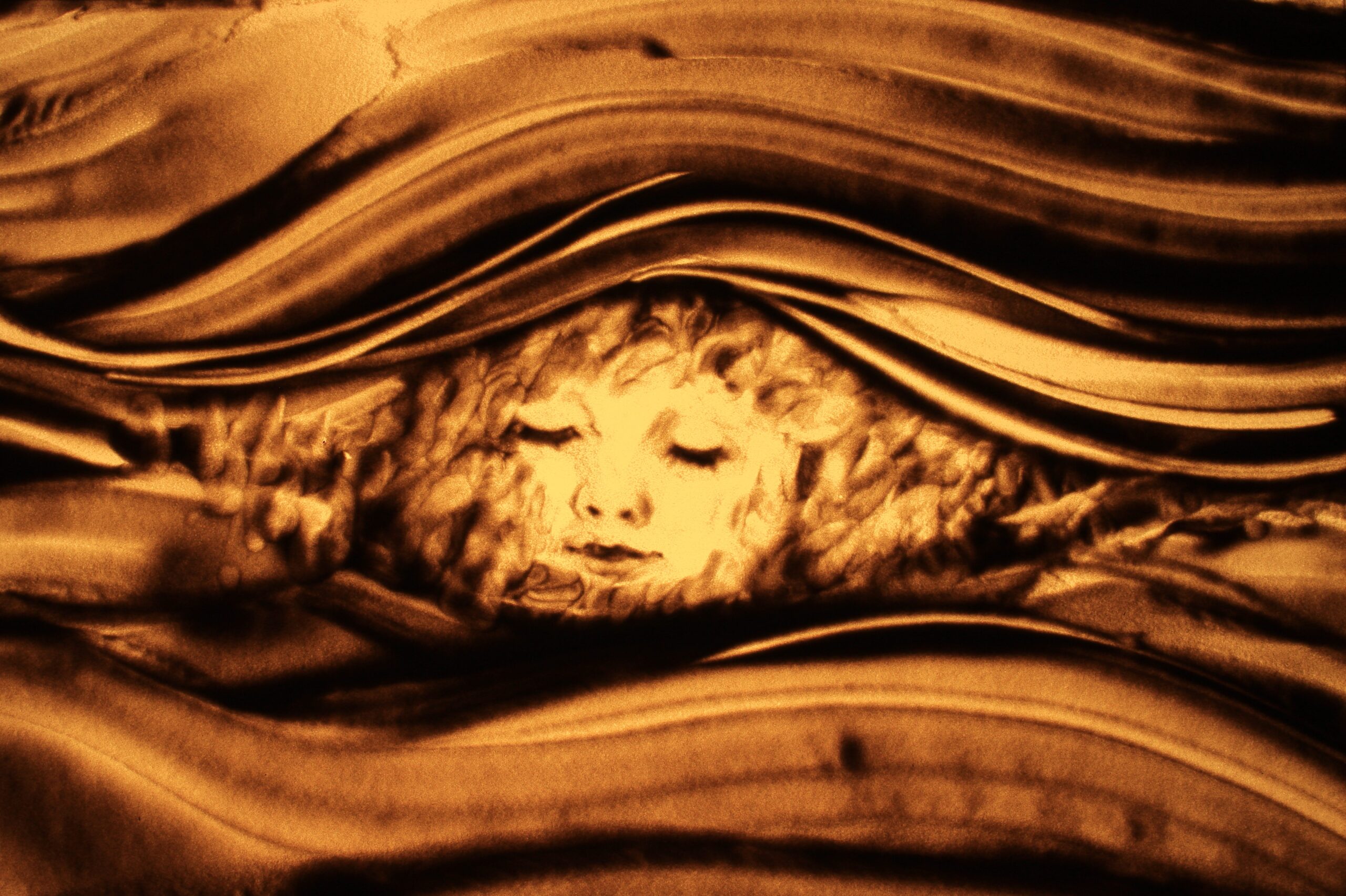
Thursday, September 25, 1:00 pm
Arts Court Theatre
Sunday, September 28, 11:00 am
OAG: Alma Duncan
Feature Film Competition
Death Does Not Exist
La mort n’existe pas
Félix Dufour-Laperrière | Canada, France | 2025 | 72:00
French with English Subtitles
14+
When a band of young activists overruns a grand estate and a violent shootout erupts, Hélène flees into the forest. There she encounters Manon—perhaps a figment of her guilt—and a mysterious child who shares her name, forcing her to confront the moral and existential choices that define her identity.
Begun over a decade ago as an imagined mix of the October Crisis and Alice in Wonderland, Death Does Not Exist weaves realism and fable. Its digital, hand-drawn animation is colored with painted forest greens, deep crimsons, and muted white-golds, creating a dynamic interplay between stillness and movement, life and death. This evolving palette mirrors Hélène’s inner journey as statuesque characters move through shifting colour fields that echo the tension between certainty and uncertainty.
At its core, Death Does Not Exist is a multilayered meditation on identity, violence, and the possibility of change. Reflecting Kierkegaard’s insight that every choice carries regret, Dufour-Laperrière asks whether uprisings can truly transform society or merely reinforce the status quo. Visually hypnotic and intellectually bracing, the film offers no easy answers, insisting on the power of reflection and the paradoxes that shape our brief lives. (Frank Remley)
FR
Lorsqu’une bande de jeunes activistes envahit un grand domaine et qu’une violente fusillade éclate, Hélène s’enfuit dans la forêt. Elle y rencontre Manon – peut-être une invention de sa culpabilité – et un mystérieux enfant qui porte le même nom qu’elle. Cette renconte la force à confronter les choix moraux et existentiels qui définissent son identité.
Créé il y a plus de dix ans comme un mélange imaginaire de la Crise d’octobre et d’Alice au pays des merveilles, La mort n’existe pas mêle réalisme et fable. Son animation numérique, dessinée à la main, est colorée de verts forestiers peints, de pourpres profonds et de blancs-or sourds, créant un jeu dynamique entre l’immobilité et le mouvement, la vie et la mort. Cette palette évolutive reflète le voyage intérieur d’Hélène, les personnages statufiés se déplaçant dans des champs de couleurs changeants qui font écho à la tension entre la certitude et l’incertitude.
Au fond, La mort n’existe pas est une méditation à plusieurs niveaux sur l’identité, la violence et la possibilité de changement. Reflétant l’idée de Kierkegaard selon laquelle tout choix entraîne un regret, Dufour-Laperrière se demande si les soulèvements peuvent réellement transformer la société ou s’ils ne font que renforcer le statu quo. Visuellement hypnotique et intellectuellement stimulant, le film n’offre pas de réponses faciles, insistant sur le pouvoir de la réflexion et les paradoxes qui façonnent nos brèves vies. (Frank Remley)
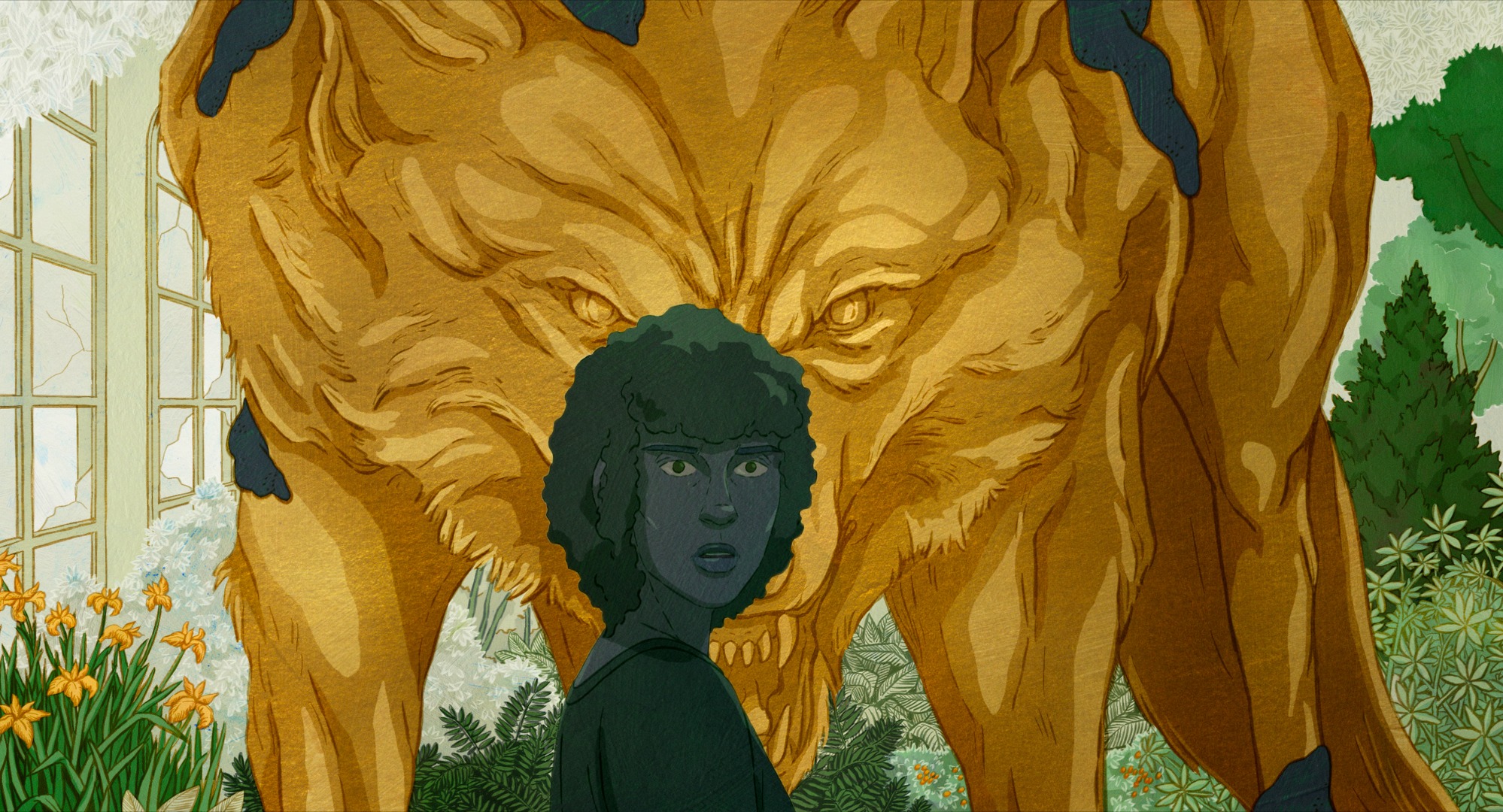
Presented in partnership with Telefilm Canada.

Wednesday, September 24, 5:00 pm
ByTowne Cinema
Friday, September 26, 7:00 pm
OAG: Alma Duncan Salon
The Great History of Western Philosophy
La gran historia de la filosofía occidental
Aria Covamonas | Mexico | 2025 | 73:00
Mature
Under the tight persecution of the Central Committee of the People’s Republic, a talking baby-doll with a cracked cranium embarks on a cacophonic journey to the west. Accompanied by comrade Sun Wukong and Pigsy, the uncanny doll and its bantering partners bravely traverse their nonsensical zeitgeist. On their never-ending escapade, they encounter an onslaught of historical icons such as Chairman Mao, Ayn Rand, Friedrich Nietzsche, and Mickey Mouse. Within the indescribable debut feature from the late Mexican animator Aria Covamonas, The Great History of Western Philosophy’s aesthetic appeal is indebted to the traditions of dadaism. Covamonas rejects conventional storytelling through her irrational compilation of nonsensical pop-culture images. Sourcing from a pool of Chinese propaganda films from before the Cultural Revolution, the chaotic appropriation of found footage ingeniously reflects upon its atomic depictions of literal culture clash.
The Great History of Western Philosophy repurposes archival footage and audio clippings from the public domain to examine the collision of Western and Eastern iconography. In its fusion of cultural signifiers, the film comically satirizes the confounding relationship between the East and West. Exemplifying the absurdity of geo-political division, The Great History of Western Philosophy purposefully mistranslates its dialogue through faulty subtitling. The lost-in-translation presentation emphasizes the power and cinematic audacity of Covamonas’s sardonic vision. Aesthetically reminiscent of Terry Gilliam’s animated vignettes from Monty Python’s Flying Circus and Hannah Höch’s dada-infused collages, Covamonas playfully rejects conventional storytelling modes in favour of distorting cultural mythologization. With her first and final feature, Covamonas’ exuberant compilation creates a new world based solely upon pre-existing images; a universe that’s thematically not so far removed from the maddening cyclone of our current political realities.
FR
Sous l’étroite persécution du Comité central de la République Populaire de Chine, une poupée parlante au crâne fêlé entreprend un voyage cacophonique vers l’ouest. Accompagnés de leurs camarades Sun Wukong et Pigsy, l’étrange poupée et ses compagnons de plaisanterie traversent courageusement leur esprit du temps absurde. Au cours de leur interminable escapade, ils rencontrent des icônes historiques telles que le président Mao, Ayn Rand, Friedrich Nietzsche et Mickey Mouse. Dans ce premier film indescriptible de la regrettée animatrice mexicaine Aria Covamonas, l’attrait esthétique de La grande histoire de la philosophie occidentale est redevable aux traditions du dadaïsme. Covamonas rejette la narration conventionnelle en compilant de manière irrationnelle des images absurdes de la culture populaire. S’inspirant d’un ensemble de films de propagande chinois datant d’avant la révolution culturelle, l’appropriation chaotique du found-footage réfléchit ingénieusement à ses représentations atomiques d’un choc culturel littéral.
La grande histoire de la philosophie occidentale reprend des images d’archives et des extraits audio du domaine public pour examiner la collision entre l’iconographie occidentale et orientale. En jouant avec les signifiants culturels, le film fait une satire comique de la relation déroutante entre l’Orient et l’Occident. Illustrant l’absurdité de la division géopolitique, La Grande Histoire de la philosophie occidentale traduit volontairement mal ses dialogues grâce à un sous-titrage défectueux. La présentation de la traduction perdue souligne la puissance et l’audace cinématographique de la vision sardonique de Covamonas. Rappelant esthétiquement les vignettes animées de Terry Gilliam dans Monty Python’s Flying Circus et les collages de Hannah Höch, Covamonas s’amuse à rejeter les modes de narration conventionnels en faveur d’une mythologisation culturelle déformée. Avec son premier et dernier long métrage, la compilation exubérante de Covamonas crée un nouveau monde basé uniquement sur des images préexistantes ; un univers qui n’est pas si éloigné, d’un point de vue thématique, du cyclone exaspérant de nos réalités politiques actuelles.
Wednesday, September 24, 9:00 pm
ByTowne Cinema
Sunday, September 28, 1:00 pm
Ottawa Art Gallery: Alma Duncan Salon
Olivia and the Invisible Earthquake
L’Olívia i el terratrèmol invisible
Irene Iborra | Spain, France, Belgium, Chile, Switzerland | 2025 | 70:00
Spanish with English Subtitles
12+
Twelve-year-old Olivia is just like any other kid from around the block. Filled with optimism and creativity, the purple-haired protagonist with iconic bright red glasses lives humbly with her mother and her younger brother Tim. Their mother, Ingrid, a down-on-her-luck actress, continuously auditions in hopes of landing a role to put food on the table. Olivia and Tim live harmoniously within their frugal home, unconcerned by Ingrid’s unemployment. Partially unaware of their financial situation, Olivia begins to create a video library of mini-movies on her phone with her best friend and brother. Unexpectedly, the tranquillity of the family dynamic is suddenly disrupted by a devastating eviction notice knocking at their door, forcing the family out of their abode onto the bustling streets of Barcelona. Protecting Tim from the severity of their living situation, Olivia promptly tells her sibling a perilous white-lie. She dupes Tim into believing that their eviction is all part of a film shoot where they’re playing the main characters. Traversing through different boroughs, Olivia navigates public welfare in search of their new home, all while performing for her brother’s sake.
Adapted from the novel ‘The Film of Our Lives’ written by Spanish author Maite Carranza, the feature-length treatment of the acclaimed novel tells an impactful story about classism, community, and empathy. Irene Iborra’s stop-motion adaptation doesn’t sugar-coat the ramifications of Olivia’s living situation. While the intensity of its subject matter takes evident centre-stage, Olivia and the Invisible Earthquake isn’t all doom and gloom. Through the vicarious presentation, the film refuses to exploit Olivia and her family’s trauma, illuminating the humanity, humour, and resilience of the titular protagonist. The end result is a powerful stop-motion drama that calls for solidarity and tolerance in the most unlikely of places.
FR
Olivia, 12 ans, est une enfant comme les autres. Pleine d’optimisme et de créativité, la protagoniste aux cheveux violets et aux lunettes rouges emblématiques vit humblement avec sa mère et son jeune frère Tim. Leur mère Ingrid, une actrice malchanceuse, passe continuellement des auditions dans l’espoir de décrocher un rôle pour nourrire sa famille. Olivia et Tim vivent en harmonie dans leur foyer frugal, sans se préoccuper du chômage d’Ingrid. Ignorant en partie leur situation financière, Olivia commence à créer une vidéothèque sur son téléphone avec sa meilleure amie et son frère. De manière inattendue, la tranquillité familiale est soudainement perturbée par un avis d’expulsion dévastateur qui frappe à leur porte, forçant la famille à quitter leur maison pour se retrouver dans les rues animées de Barcelone. Pour protéger Tim de la gravité de leur situation, Olivia s’empresse de raconter à son frère un périlleux mensonge. Elle fait croire à Tim que leur expulsion fait partie d’un tournage dont ils sont les personnages principaux. Traversant différents quartiers, Olivia navigue à travers les services sociaux à la recherche d’un nouveau logement, tout en jouant pour le bien de son frère.
Adapté du roman « Le film de nos vies » de l’auteure espagnole Maite Carranza, le long métrage consacré à ce roman acclamé raconte une histoire marquante sur le classisme, la communauté et l’empathie. L’adaptation en stop-motion d’Irene Iborra n’édulcore pas les ramifications de la situation d’Olivia. Bien que l’intensité de son sujet occupe évidemment le devant de la scène, Olivia et le tremblement de terre invisible n’est pas si sombre que cela. Grâce à la présentation par procuration, le film refuse d’exploiter le traumatisme d’Olivia et de sa famille ; il met en lumière l’humanité, l’humour et la résilience de la protagoniste titulaire. Le résultat final est un drame en stop-motion puissant qui appelle à la solidarité et à la tolérance dans les endroits les plus improbables.
Presented in partnership with ICEX Spanish Trade Commission

Thursday, September 25, 11:00 am
ByTowne Cinema
Friday, September 26, 3:00 pm
ByTowne Cinema
Tales from the Magic Garden
Pohádky po babičce
David Súkup, Jean-Claude Rozec, Leon Vidmar & Patrik Pašš | Czechia, Slovakia, Slovenia, France | 2025 | 71:00
Czech with English subtitles
14+
In the aftermath of their late grandmother’s passing, Tom, Suzanne and Derek return to their grandparents’ abode. While their grandfather remains withdrawn from their family, the three children reminisce and contemplate their matriarch’s absence. Longing for her artistic voice, Suzanne begins to adopt the role of a communal storyteller. Akin to her grandmother’s knack for oral storytelling, her siblings congregate and listen to Suzanne’s outlandish fantasy fables. Through the power of the spoken word, the children learn to heal from their bereavement, finding humour and valuable morals through surrealist stop-motion vignettes.
FR
Après le décès de leur grand-mère, Tom, Suzanne et Derek retournent dans la maison de leurs grands-parents. Alors que leur grand-père reste en retrait de leur famille, les trois enfants se remémorent et contemplent l’absence de leur matriarche. Suzanne, qui s’ennuie de sa voix artistique, commence à jouer le rôle d’une conteuse communautaire. Ses frères et sœurs se rassemblent pour écouter les fables fantastiques de Suzanne, qui rappallent le talent de leur grand-mère pour les récits oraux. Grâce au pouvoir de la parole, les enfants apprennent à surmonter leur deuil, en trouvant de l’humour et de précieuses morales dans des vignettes surréalistes en stop-motion.


Thursday, September 25, 5:00 pm
ByTowne Cinema
Saturday, September 27, 11:00 am
OAG: Alma Duncan (Free for kids under 12 and anyone with a Pique ticket)
ChaO
Yasuhiro Aoki | Japan | 2025 | 90:00
Japanese with English Subtitles
14+
Indifferent to his repetitive routines at his tiresome workplace, Stephen’s uneventful itinerary is abruptly halted when King Neptunus arrives in Shanghai for an important business endeavour. The crowned ruler of the Merman kingdom is seeking justice for the needless injuries of innocent fish, who have been hurt by screw propellers from neighbouring vessels. Stephen’s boss, Mr. Sea, negotiates and defends his shipbuilding company’s harmful product, causing a shift in Shanghai’s political and economic relationship with the aquatic world. In the aftermath of his employer’s diplomatic fallout, Stephen spontaneously meets Chao, the noble daughter of King Neptunus and princess of the Merman kingdom. In the great vein of other aquatic-themed love stories, Chao inevitably falls head over heels for Stephen’s ordinary veneer. Pressured by Mr. Sea and the local media into marrying Chao for the sanctity of positive trade relationships, Stephen must adapt to his partner’s bewildering lifestyle, or suffer the consequence of social exclusion.
Produced by Studio 4°C, the renowned anime powerhouse behind cult-classics such as Mind Game, Children of the Sea, and Tekkonkinkreet, Chao swimmingly carries the cutting-edge torch of the studio’s iconoclastic reputation. Loosely inspired by Hans Christian Andersen’s The Little Mermaid, Yasuhiro Aoki’s delightful debut updates the original text with a unique globalized spin. The film is a high-energy romance with an insatiable energy. From its expansive worldbuilding to its charismatic characters, Aoki’s kinetic direction will enchant viewers with his contemporary reimagining.
FR
Indifférent aux routines répétitives de son fastidieux lieu de travail, le quotidien de Stephen est brusquement interrompu lorsque le roi Neptunus arrive à Shanghai pour une affaire importante. Le souverain couronné du royaume des hommes cherche à obtenir justice pour les blessures inutiles infligées à d’innocents poissons par les hélices de navirs voisins. Le patron de Stephen, M. Sea, négocie et défend le produit nocif de son entreprise de construction navale, provoquant un changement dans les relations politiques et économiques de Shanghai avec le monde aquatique. À la suite des retombées diplomatiques de son employeur, Stephen rencontre spontanément Chao, la noble fille du roi Neptunus et princesse du royaume Merman. Dans la grande veine des autres histoires d’amour aquatiques, Chao tombe inévitablement amoureuse de l’apparence ordinaire de Stephen. Poussé par M. Sea et les médias locaux à épouser Chao pour le caractère sacré des relations commerciales positives, Stephen doit s’adapter au mode de vie déconcertant de sa partenaire, ou subir les conséquences de l’exclusion sociale.
Produit par Studio 4°C, le célèbre studio d’animation à l’origine de classiques tels que Mind Game, Children of the Sea et Tekkonkinkreet, Chao porte le flambeau avant-gardiste de la réputation iconoclaste du studio. Librement inspiré de La petite sirène de Hans Christian Andersen, le délicieux premier film de Yasuhiro Aoki actualise le texte original en lui donnant une tournure unique et mondialisée. Le film est une romance pleine d’énergie, d’une énergie insatiable. De la construction du monde à ses personnages charismatiques, la mise en scène cinétique d’Aoki enchantera les spectateurs avec sa réimagination contemporaine.
Thursday, September 25, 9:00 pm
ByTowne Cinema
Saturday, September 27, 7:00 pm
ByTowne Cinema
Decorado
Alberto Vázquez | Spain | 2025 | 94:48
Spanish with English Subtitles
14+
Arnold is in a rut. Blacklisted and alienated from his anthropomorphic society, the manic middle-aged mouse routinely obsesses over elaborate conspiracies. Something is wrong with his society. He believes that his world is a lavish stage; a film-set where his neighbours, peers, and enemies congregate and perform. In his poverty, the manifestation of his hysteria grows with his societal discontent. His unemployment has forced his wife, María, to claim the role of the breadwinner. Arnold’s depleting mental health ignites his resentment against the A.L.M.A. corporation, a multi-billion-dollar enterprise that manufactures and distributes his township’s goods and services. Arnold’s resistance against the corporate monopoly plays like a David-versus-Goliath fairytale about one mouse’s self-actualization in the face of bureaucratic fascism. Don’t let the cute character design fool you. Decorado is an insatiably twisted dark comedy that bravely questions the role of authoritative power structures.
Alberto Vázquez returns to the Ottawa International Animation Festival with his latest animated feature. Extending upon his homonymous short film, Decorado playfully elaborates upon the self-referential ideas from his original source material. Dumping the monochromatic pastiche from his short in exchange for a vibrant pastiche, the feature version of Vázquez’s vision is visually enchanting with its rich colour palette and memorable characters. Ultimately, Decorado successfully subverts its juvenile veneer with a passionate tale of resistance. The relevance of the film’s political sentiments couldn’t be more prescient. The magic at the helm of Vázquez’s fantasy world boastfully asks difficult questions, while never losing its mordant edge.
FR
Arnold est dans une impasse. Mis à l’index et aliéné de sa société anthropomorphique, cette souris maniaque d’âge moyen est obsédée par des conspirations complexes. Quelque chose ne va pas dans sa société. Il croit que son monde est un vaste décor de cinéma, une mise en scène où ses voisins, ses pairs et ses ennemis se rassemblent et jouent un rôle. Dans sa pauvreté, son hystérie a s’accroît avec le mécontentement de la société. Son chômage a contraint sa femme María à assumer le rôle de soutien de famille. L’épuisement de la santé mentale d’Arnold enflamme son ressentiment à l’égard de la société A.L.M.A., une entreprise multimilliardaire qui fabrique et distribue les biens et les services de son canton. La résistance d’Arnold contre le monopole de l’entreprise ressemble à un conte de David contre Goliath sur l’accomplissement personnel d’une souris face au fascisme bureaucratique. Ne vous laissez pas tromper par l’aspect mignon du personnage. Decorado est une comédie noire incroyablement tordue qui remet courageusement en question le rôle des structures de pouvoir autoritaires.
Alberto Vázquez est de retour au Festival international d’animation d’Ottawa avec son plus récent long métrage d’animation. En s’inspirant de son court métrage homonyme, Decorado s’amuse à développer les idées autoréférentielles de son matériau d’origine. Abandonnant le pastiche monochrome de son court métrage au profit d’un pastiche vibrant, la version long métrage de la vision de Vázquez est visuellement enchanteresse avec sa riche palette de couleurs et ses personnages mémorables. En fin de compte, Decorado subvertit avec succès son vernis juvénile en racontant une histoire passionnée de résistance. La pertinence des sentiments politiques du film ne pourrait être plus actuelle. La magie aux commandes du monde fantastique de Vázquez pose des questions difficiles, sans jamais se départir de son côté mordant.
Friday, Sept 26, 5:00 pm
ByTowne Cinema
Saturday, September 27, 9:00 pm
ByTowne Cinema
Best of Ottawa 2025
Feature Grand Prize Winner
Sunday, September 28th, 5:00 pm
ByTowne Cinema
Shorts
Sunday, September 28th, 7:00 pm
ByTowne Cinema
Shorts
Sunday, September 28th, 9:00 pm
ByTowne Cinema
The Best of Ottawa program showcases audience favourites and award winners from the 2025 Ottawa International Animation Festival competition. The screenings offer a sampling of exceptional animated short films that explore moments of humour, profundity, and inspiration. The works in this collection provide a unique cross-section of some of the best contemporary film artists from around the world.

Canadian Panorama
Canadian Short Film Panorama
Presented in partnership with Telefilm Canada.

Thursday, September 25, 5:00 pm
OAG: Alma Duncan Salon
Friday, September 26, 9:00 pm
Arts Court Theatre
